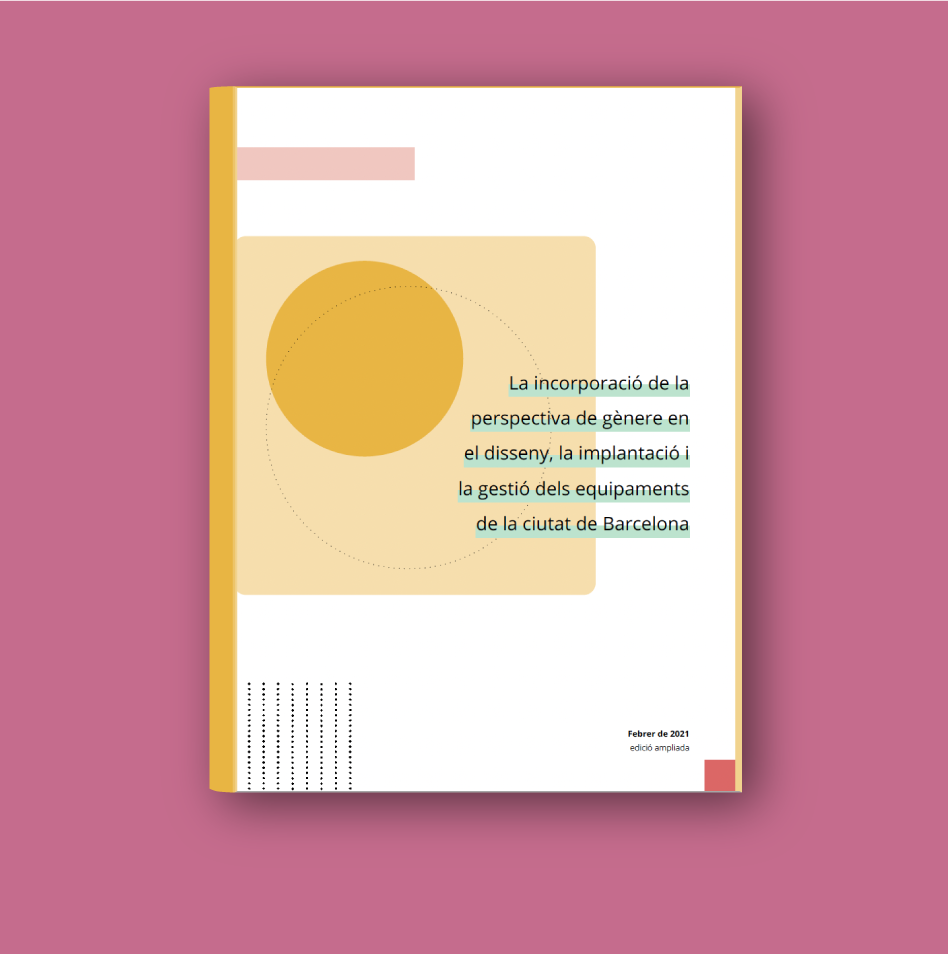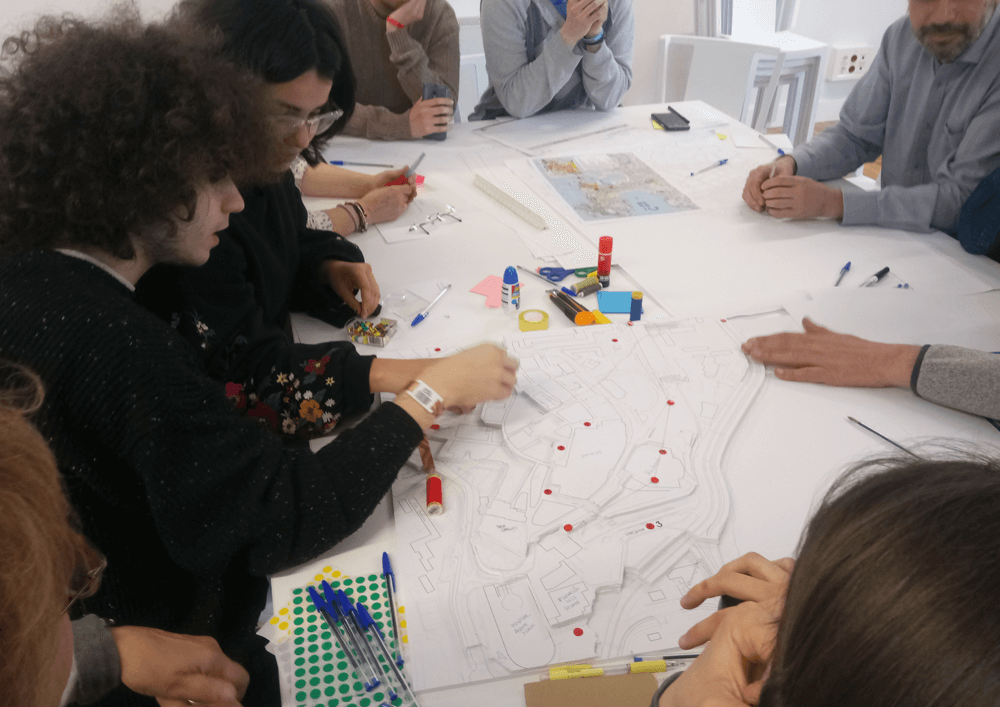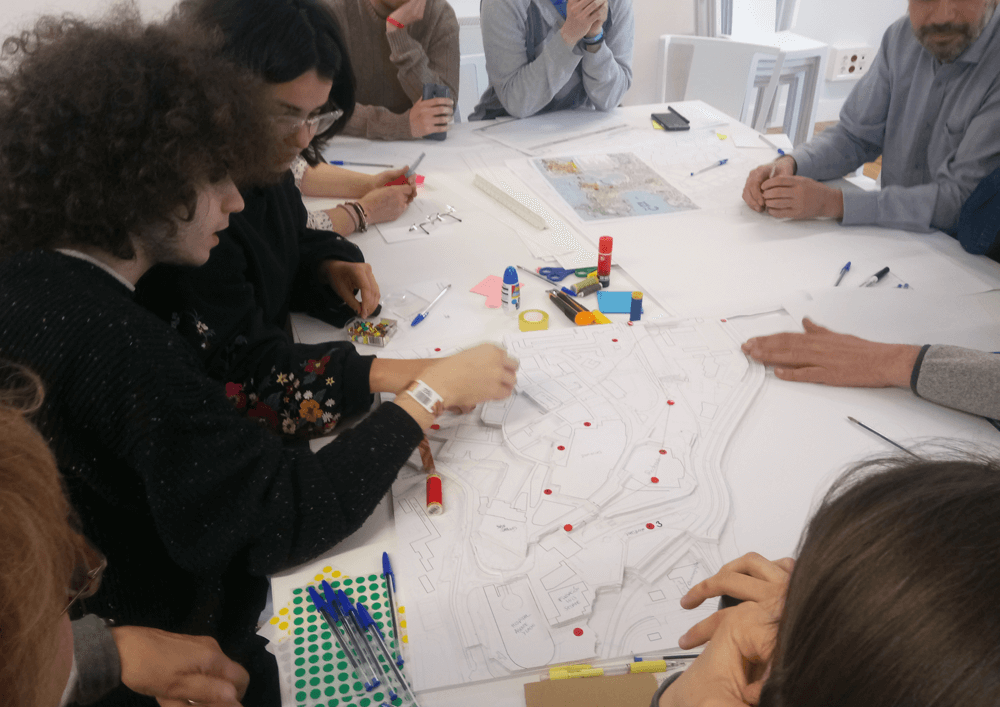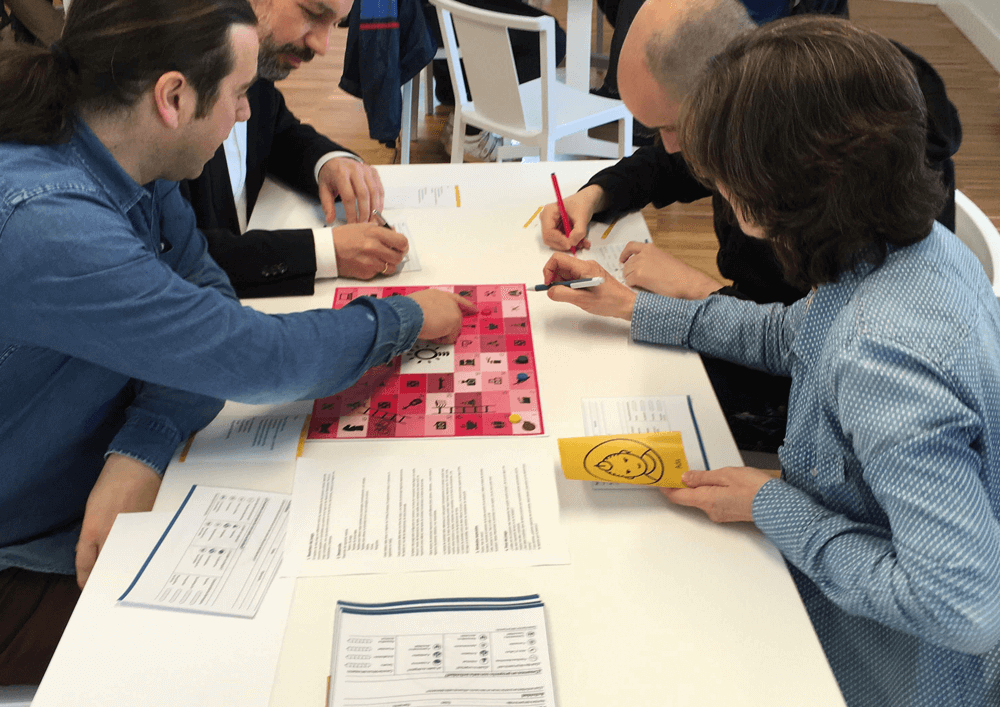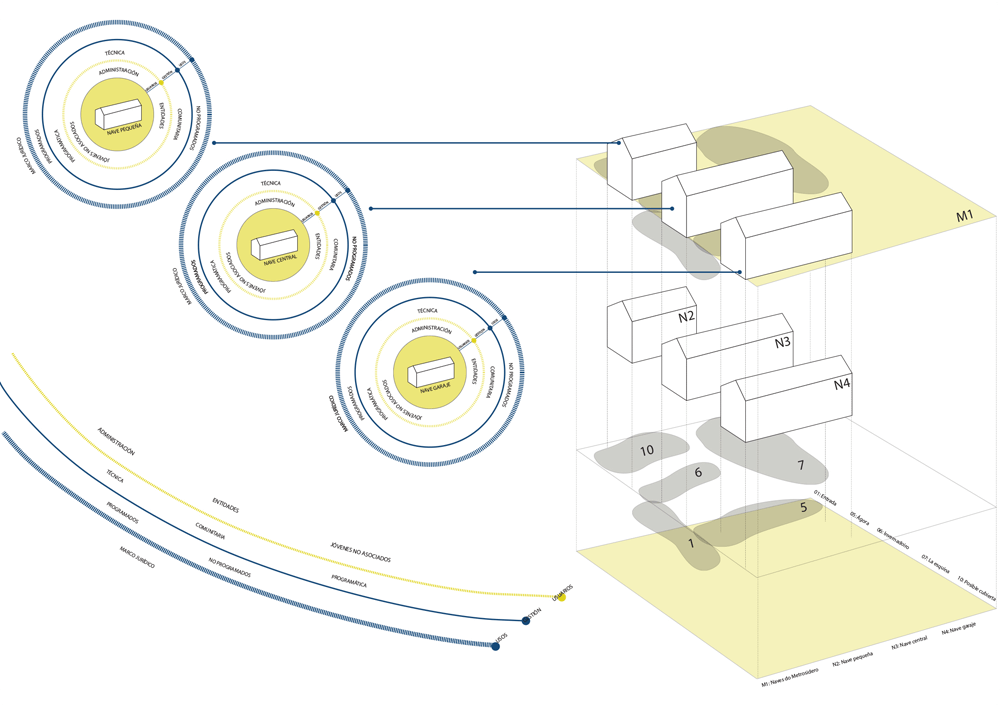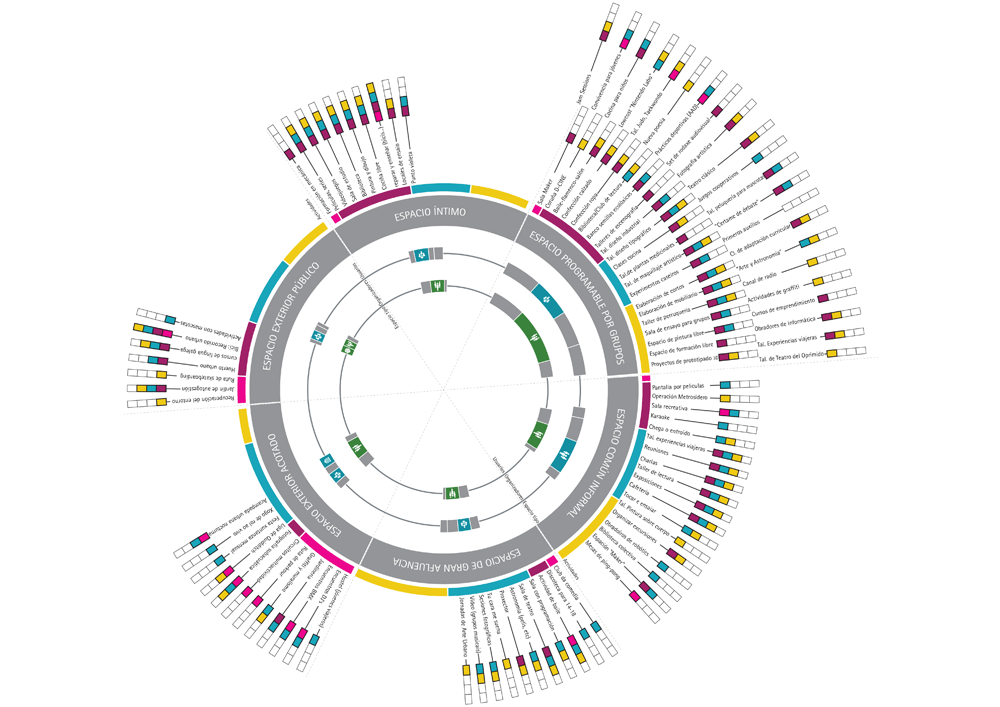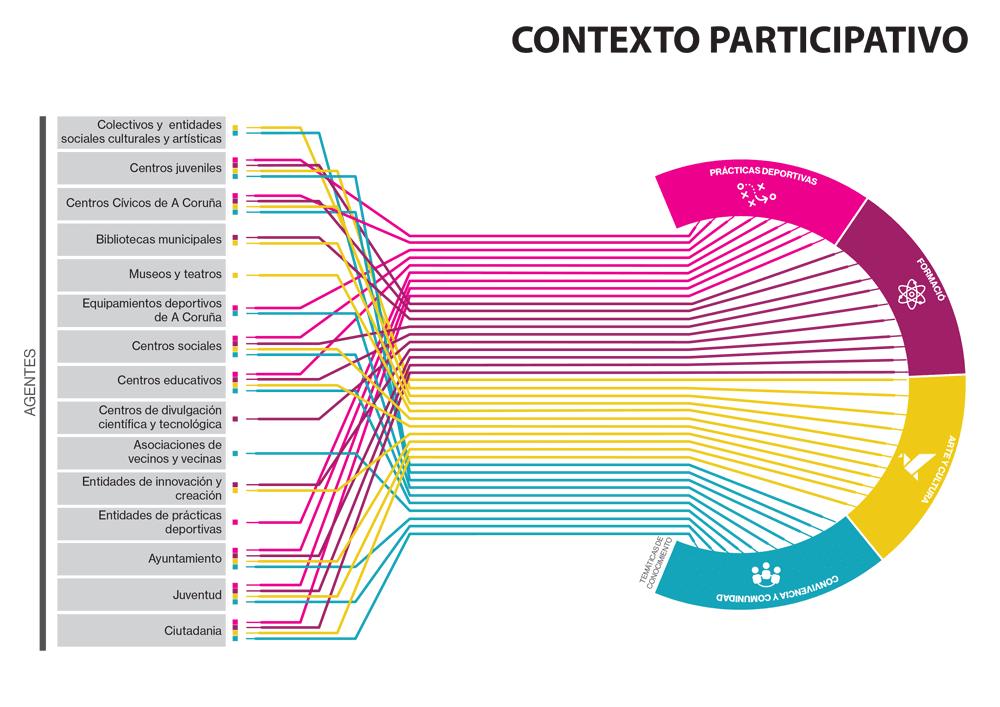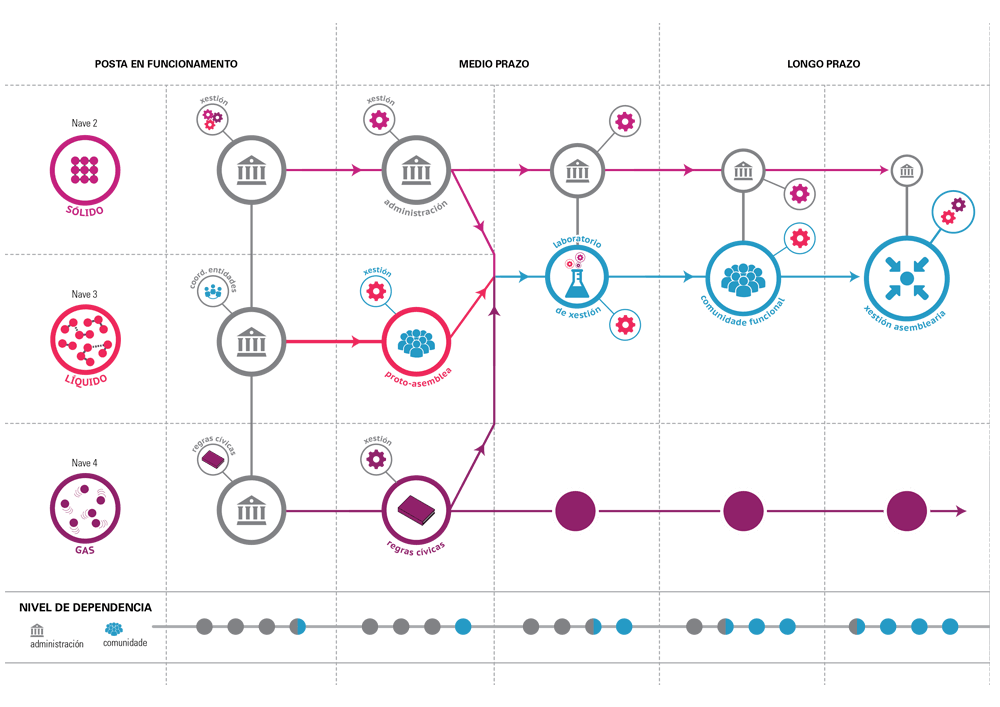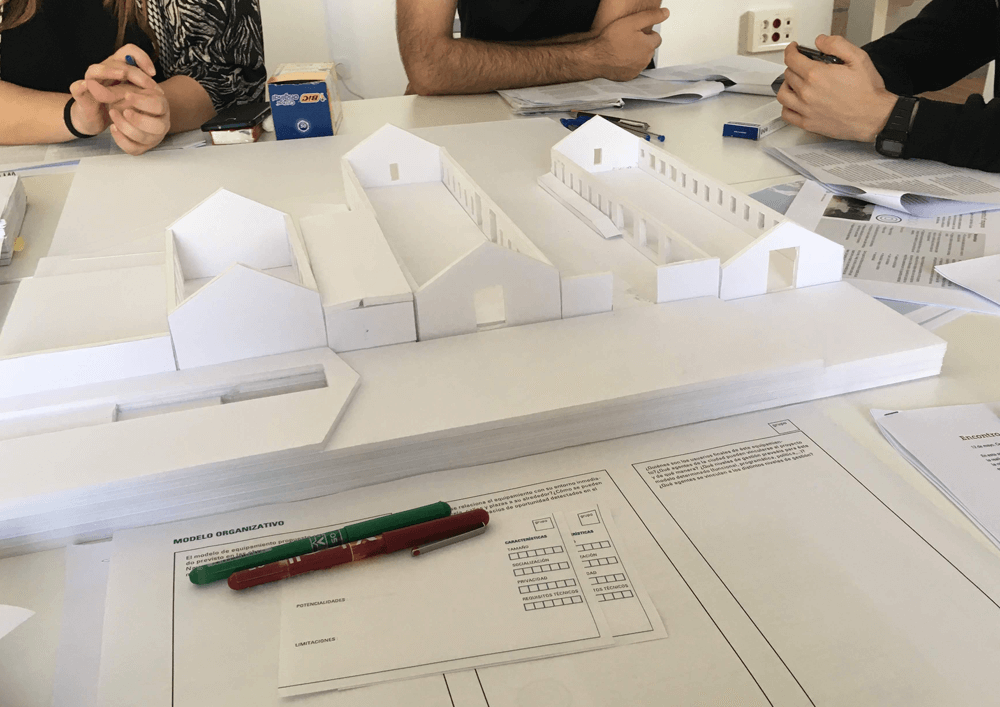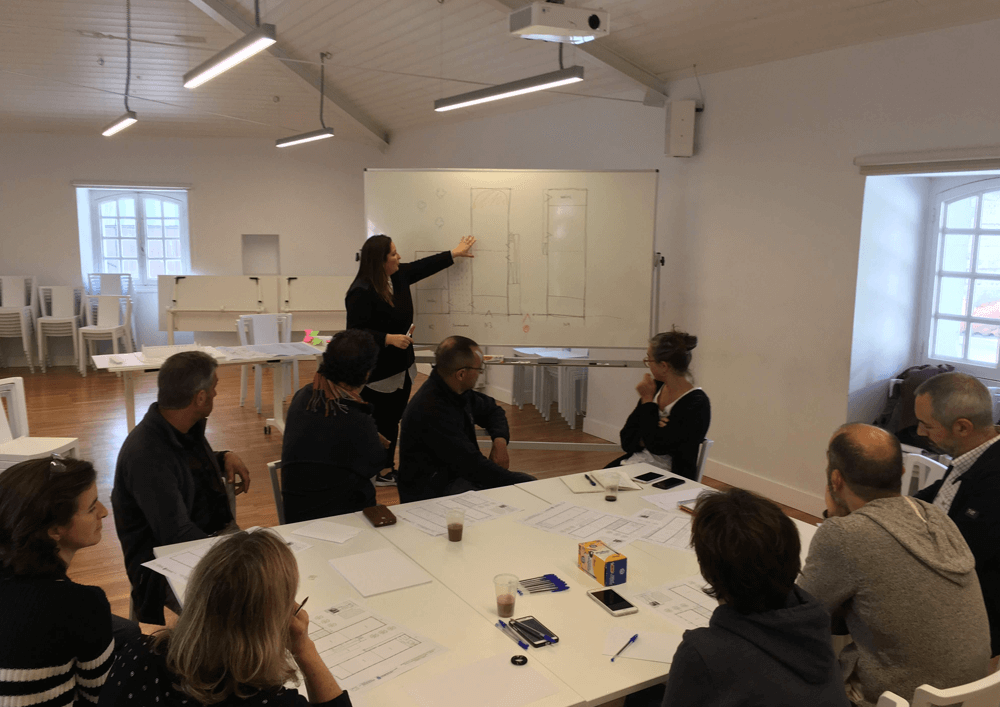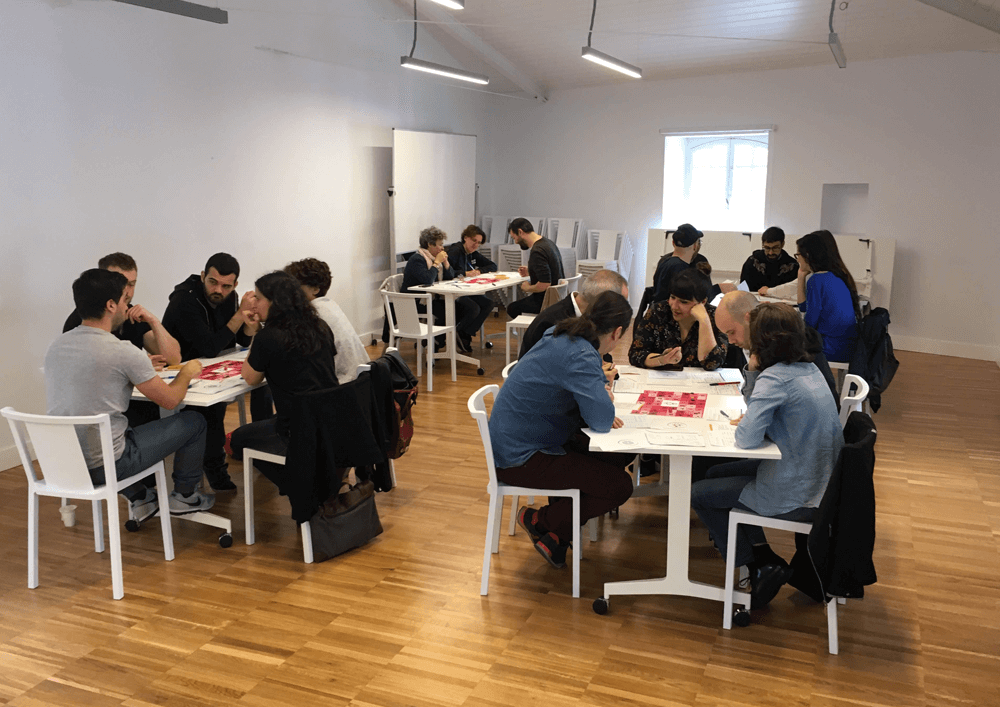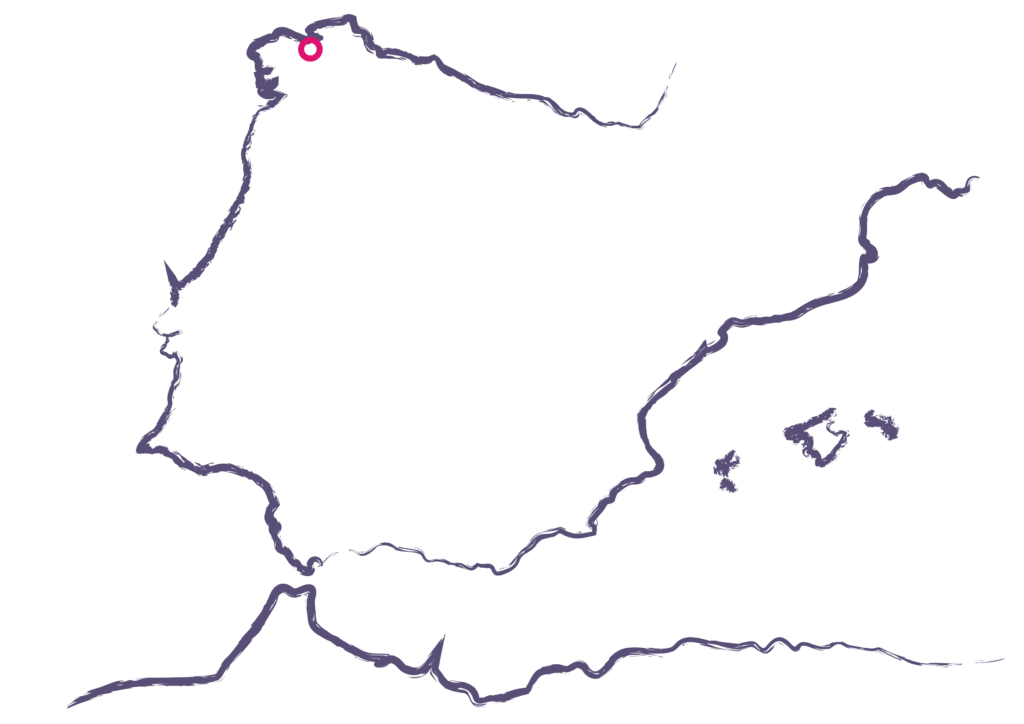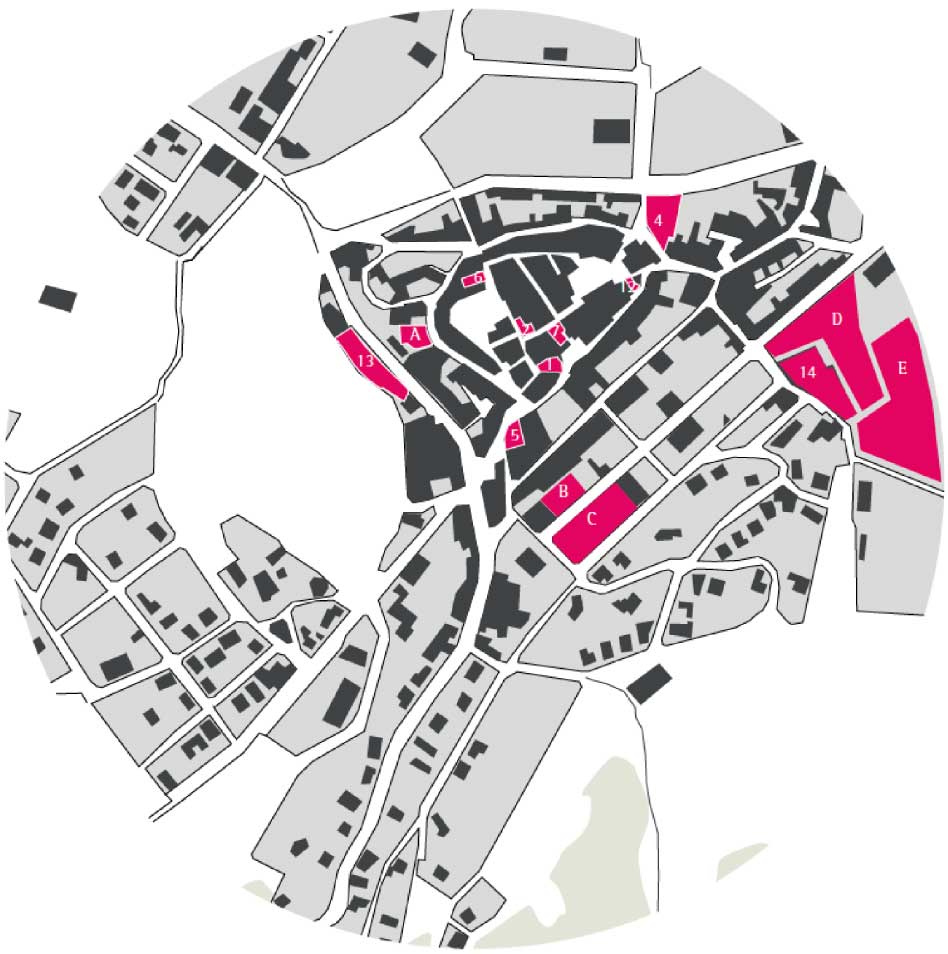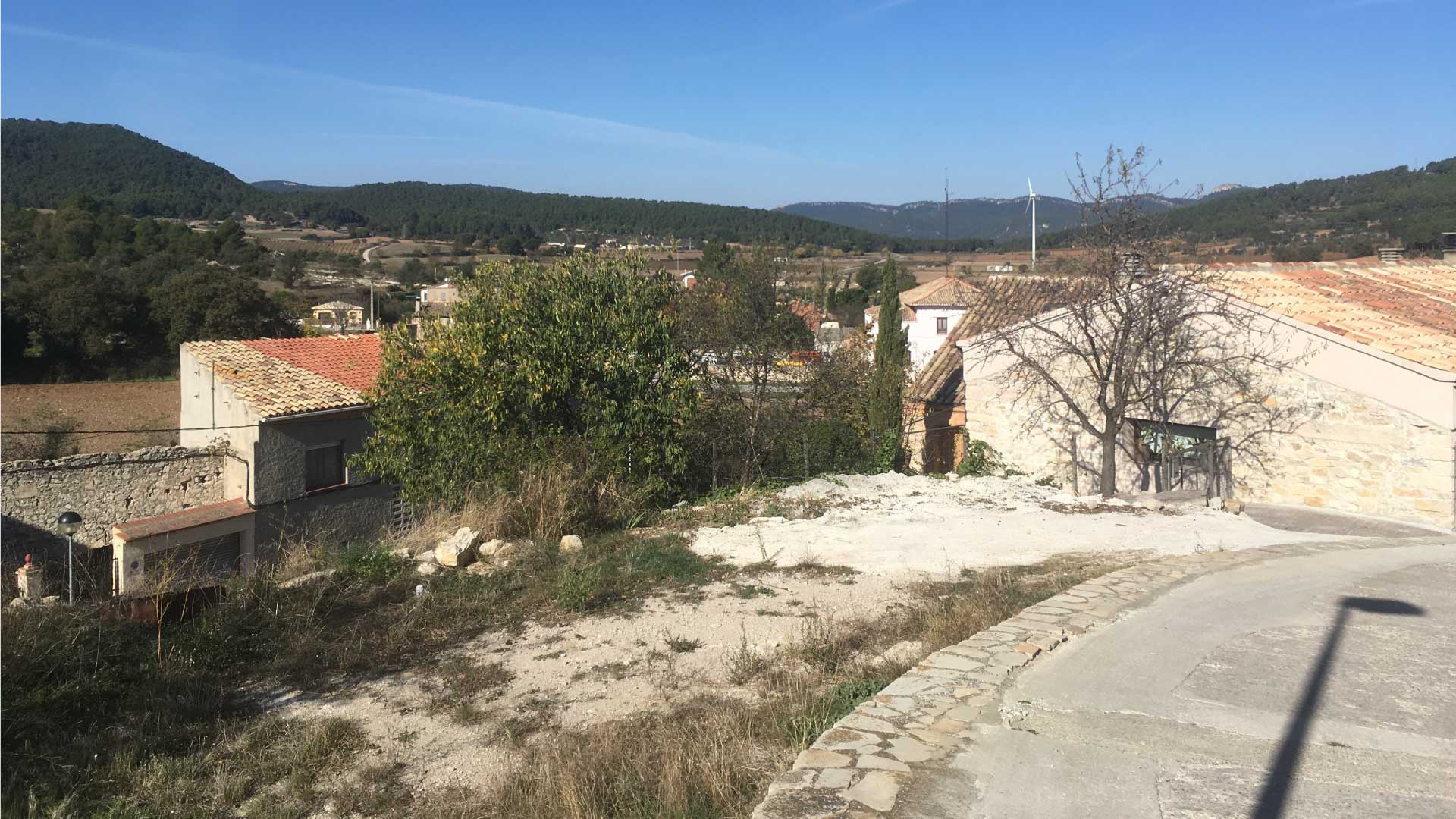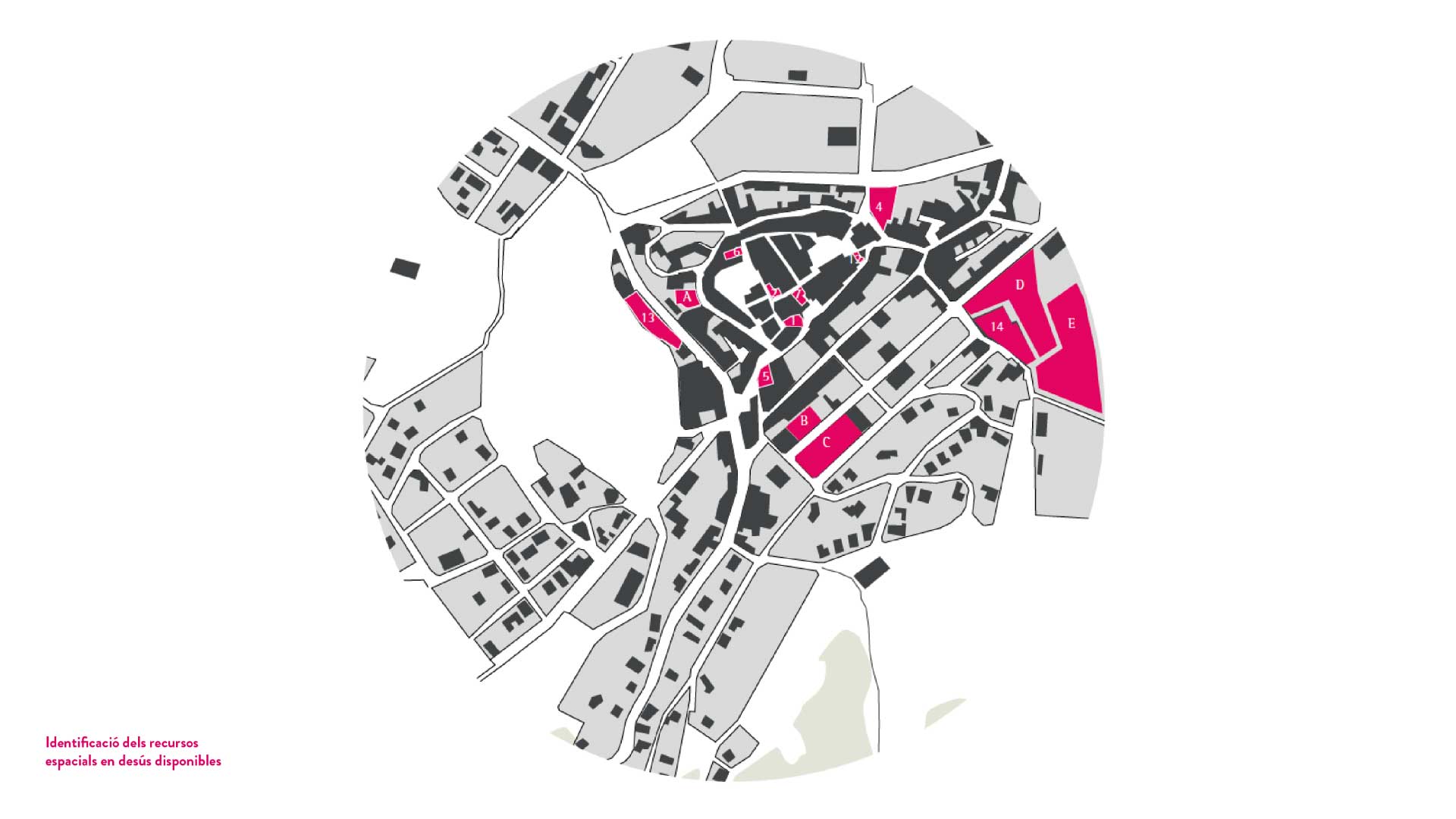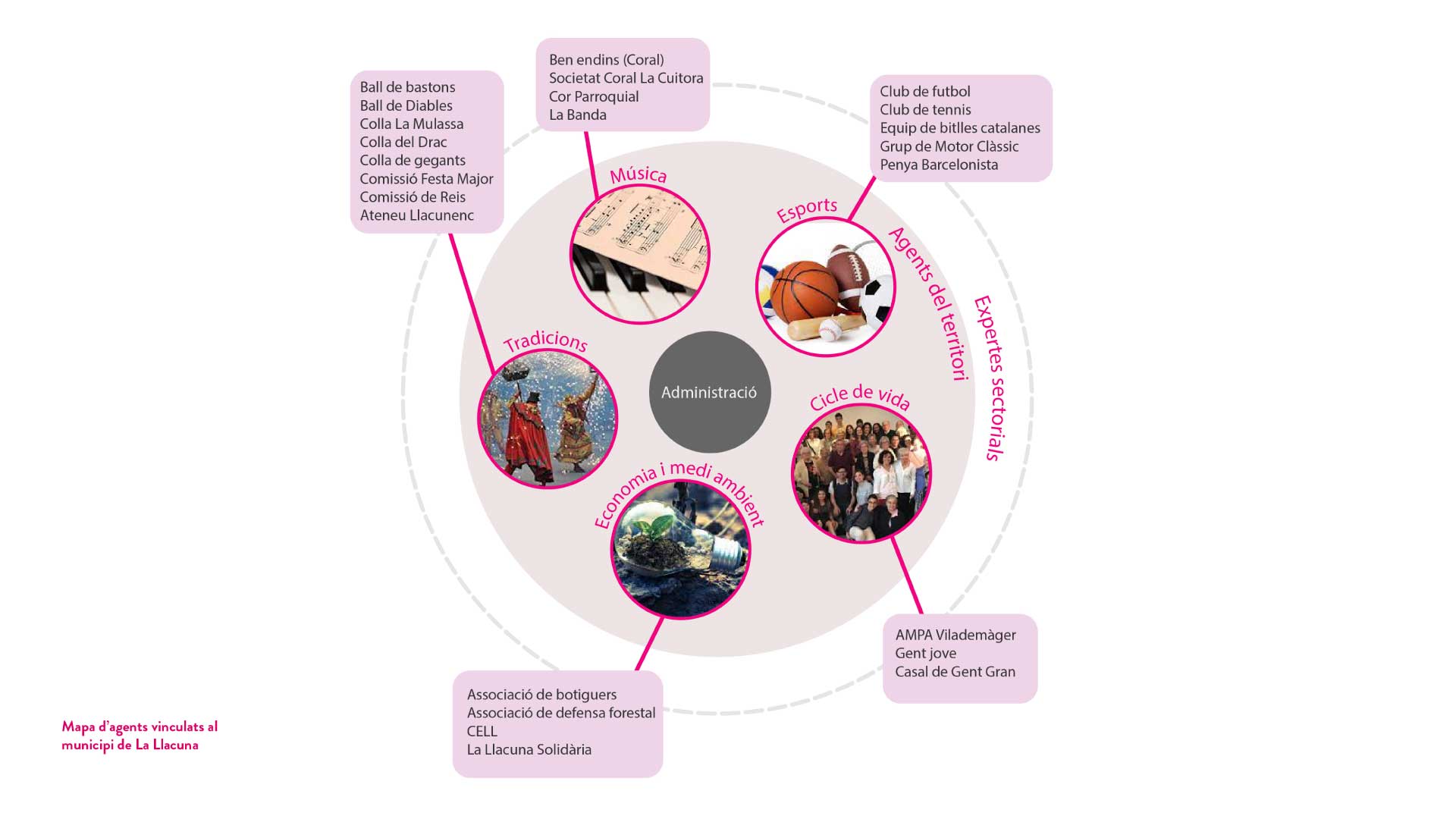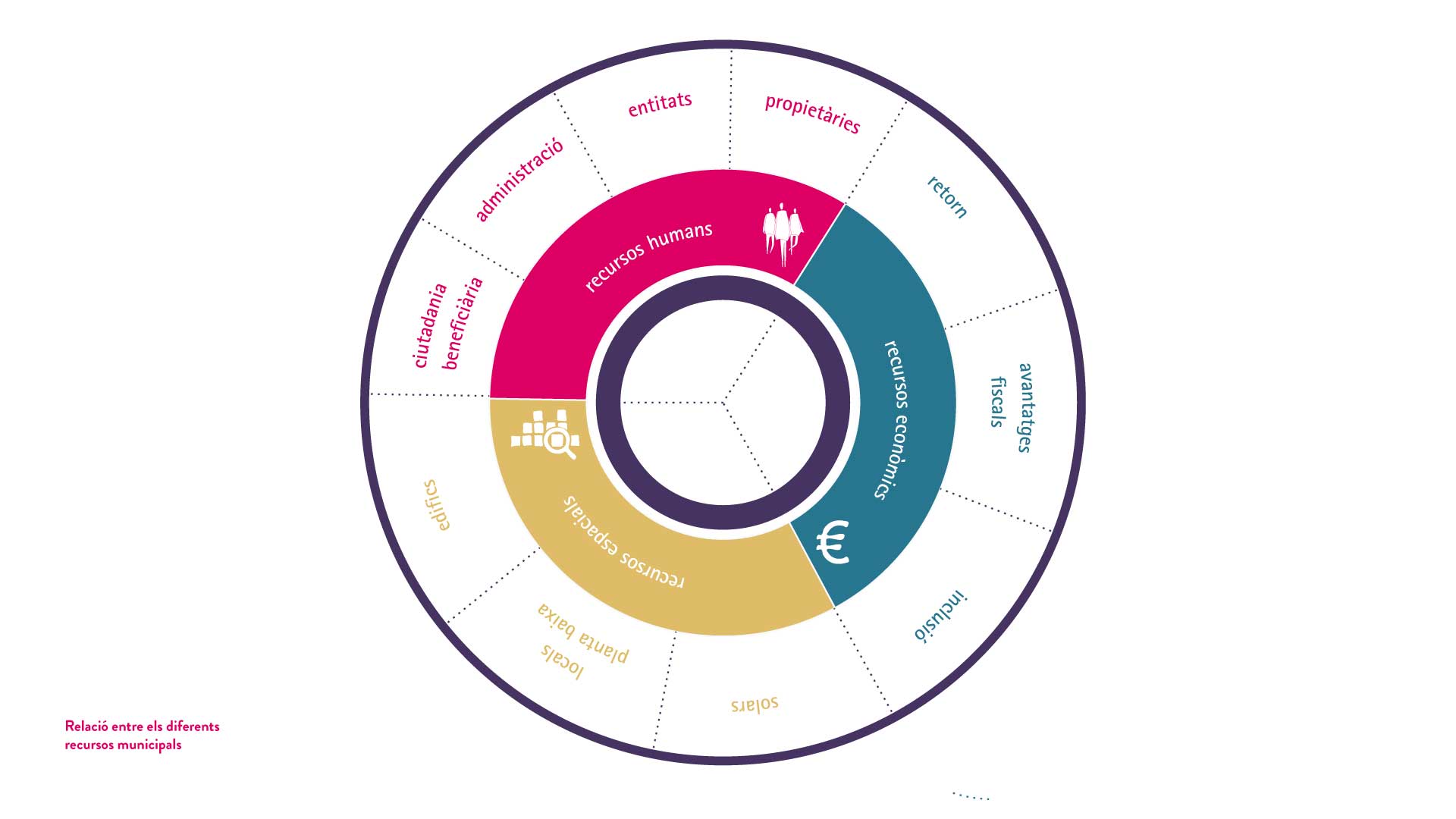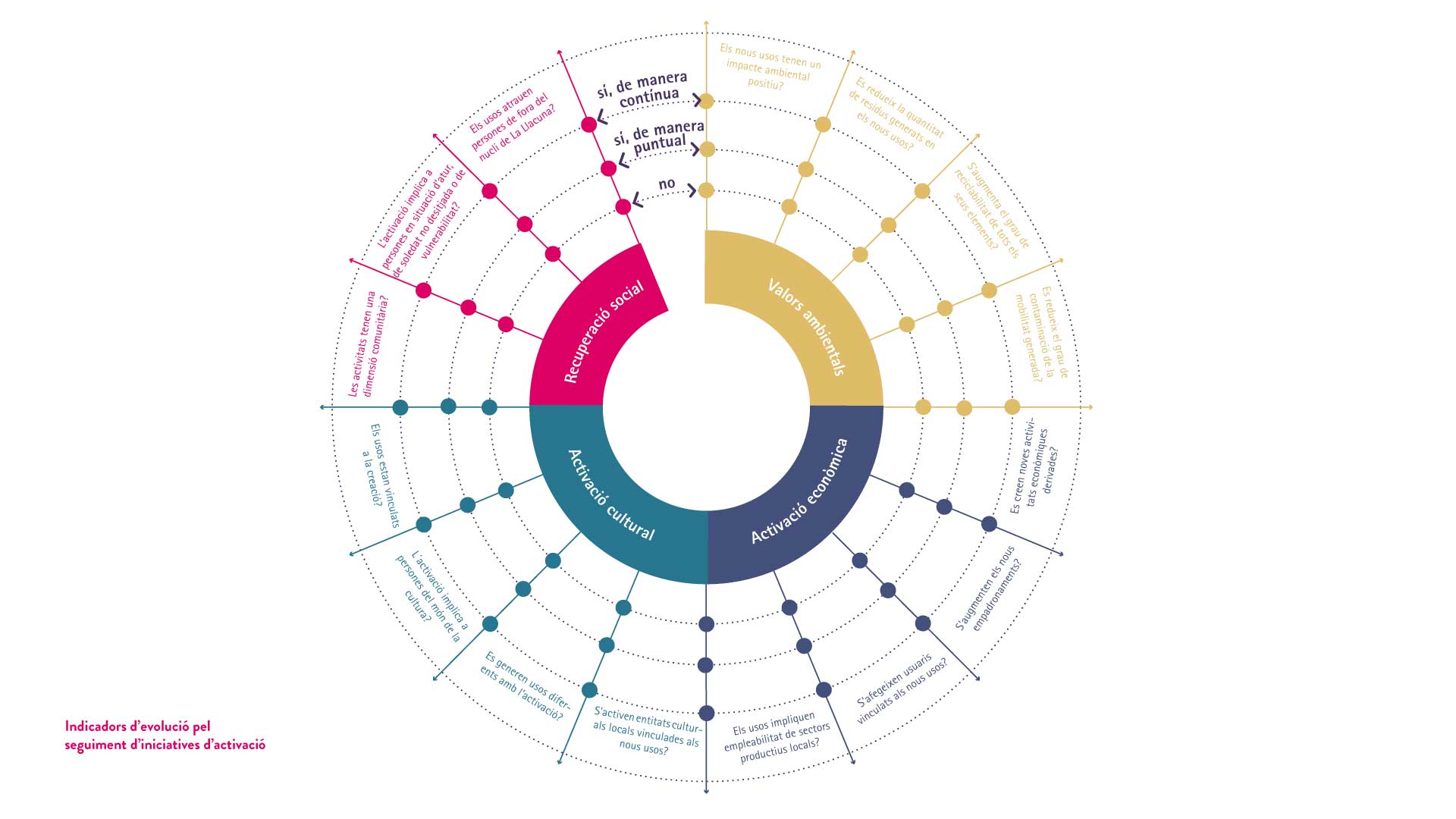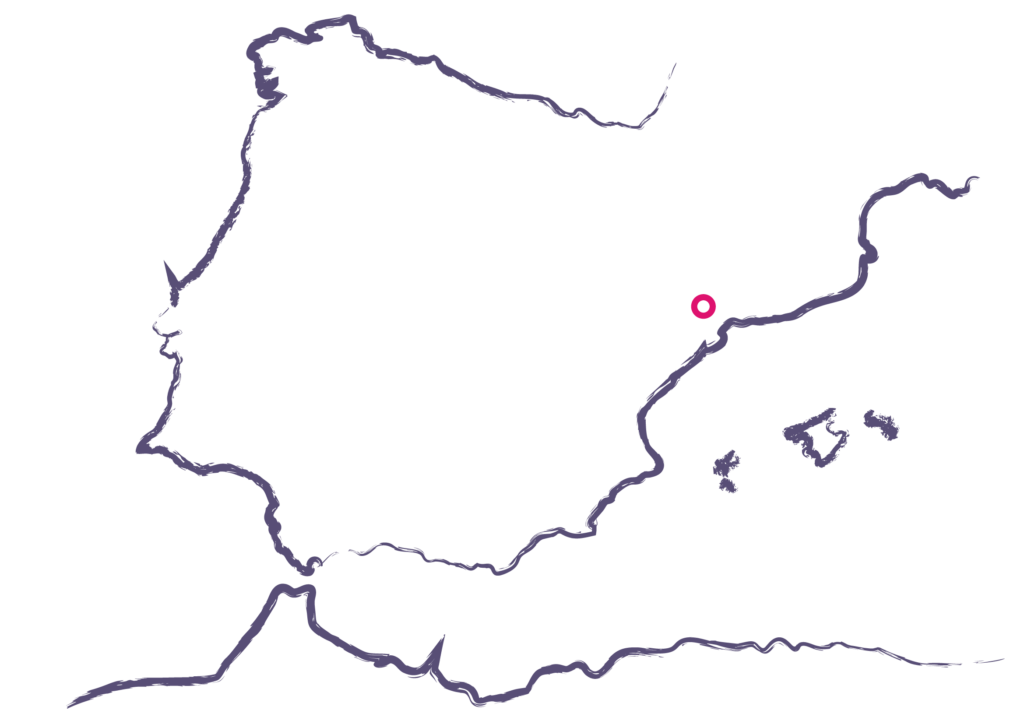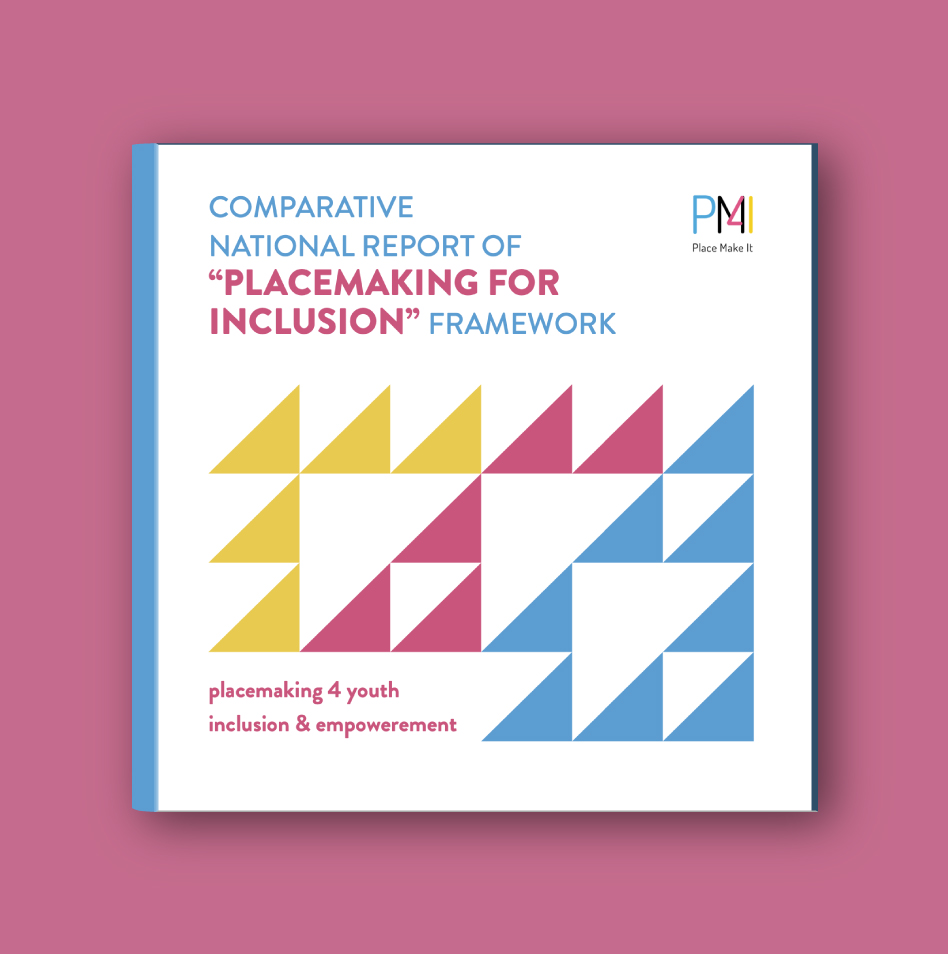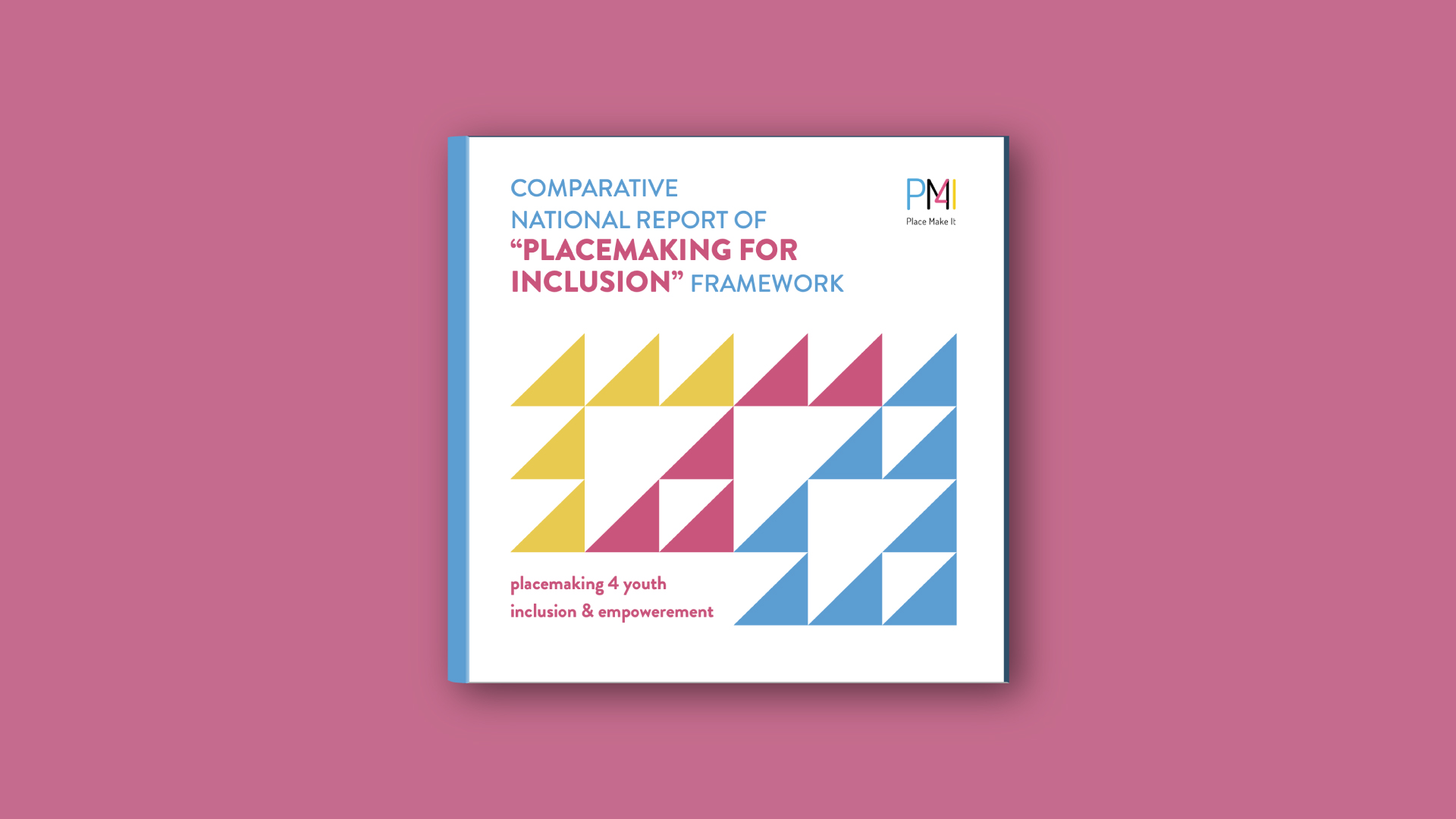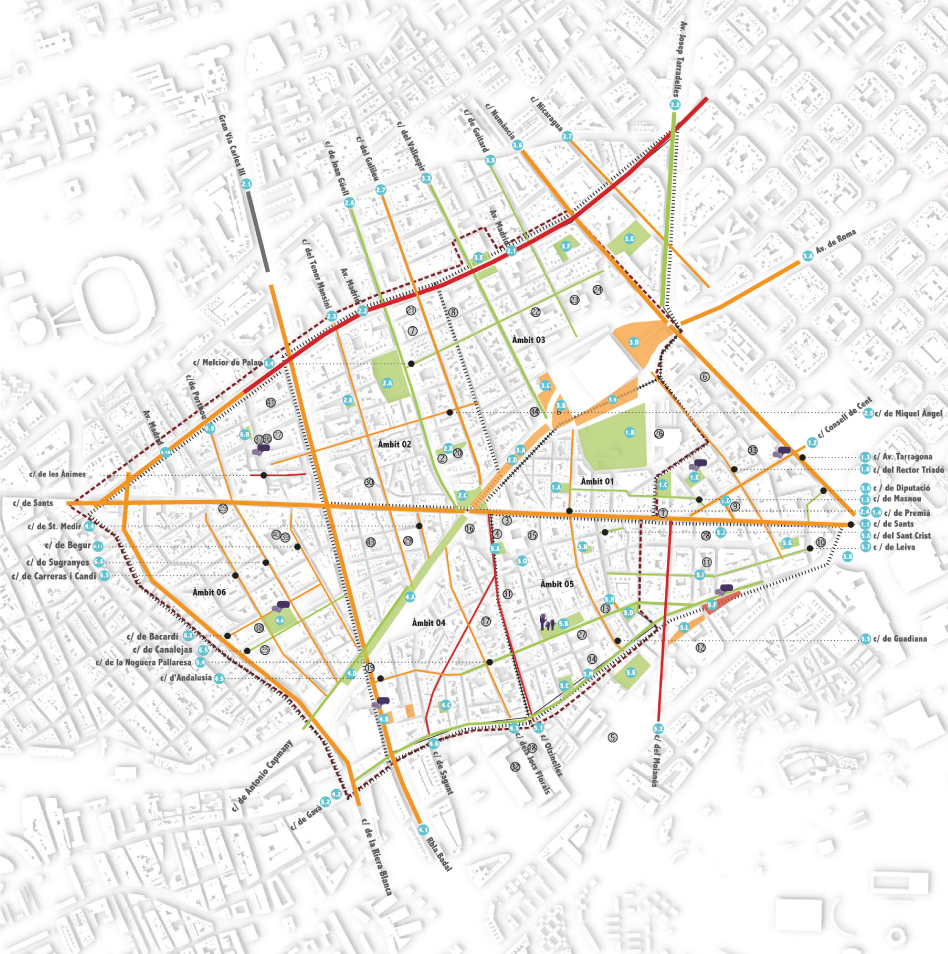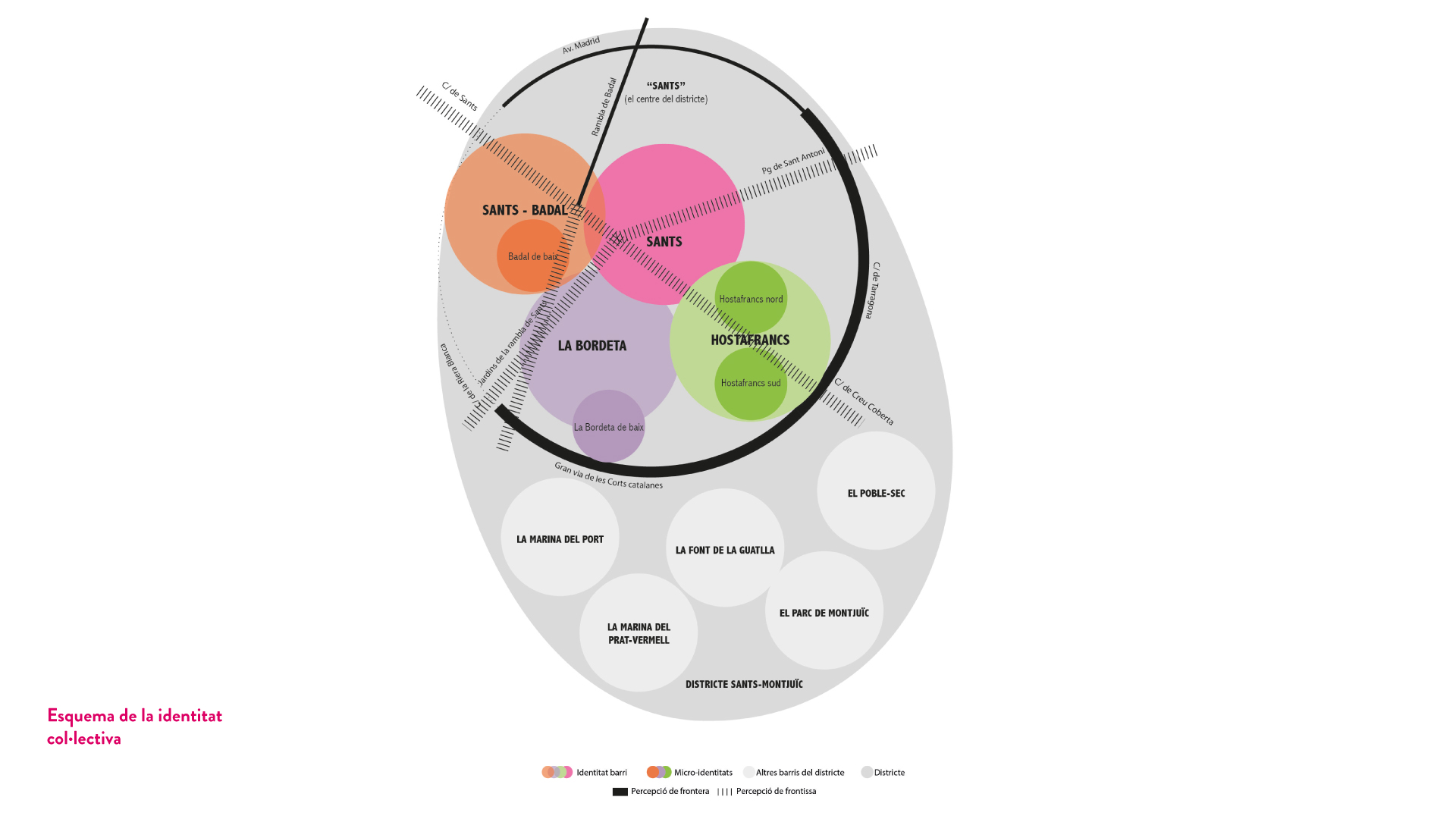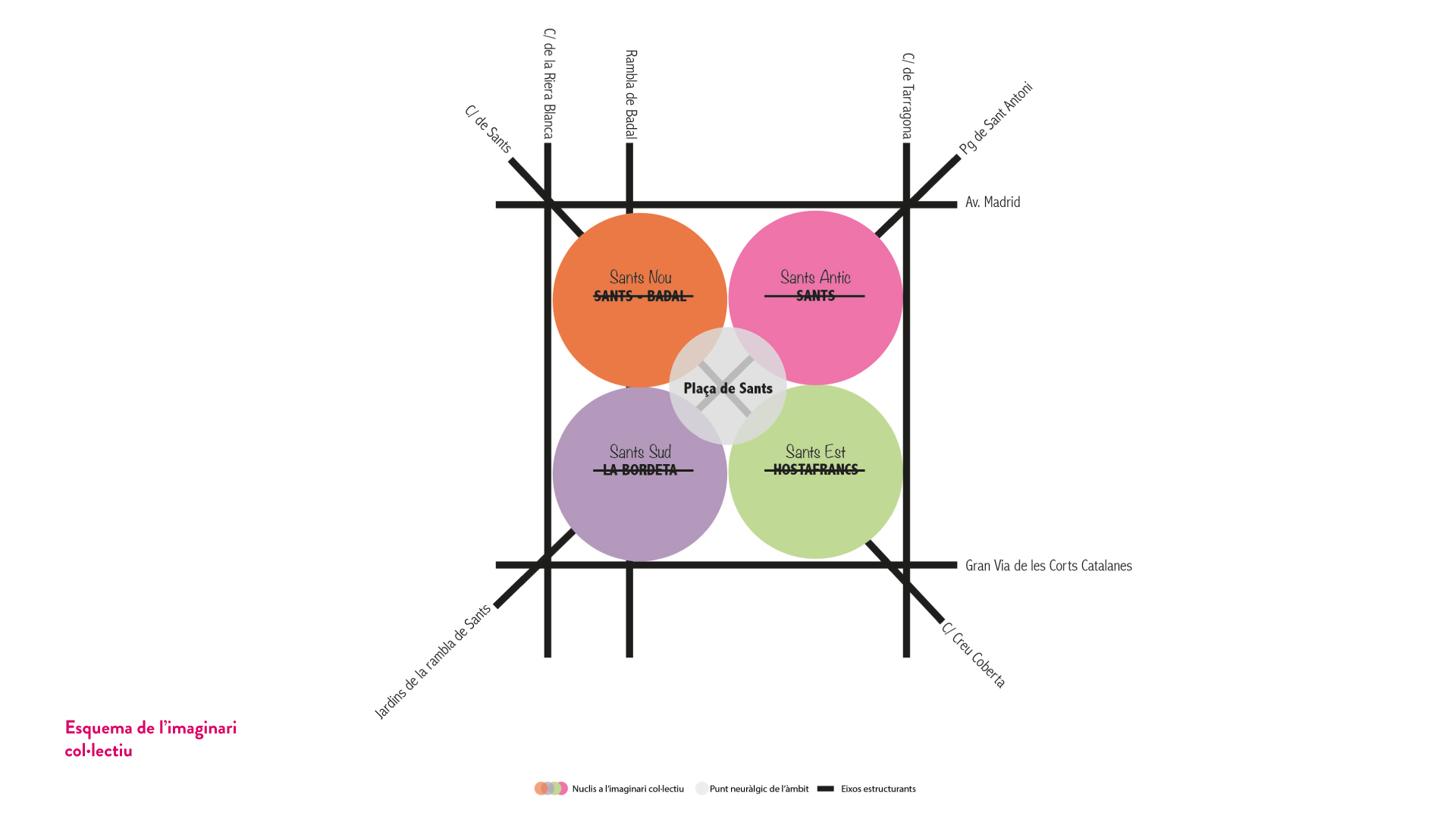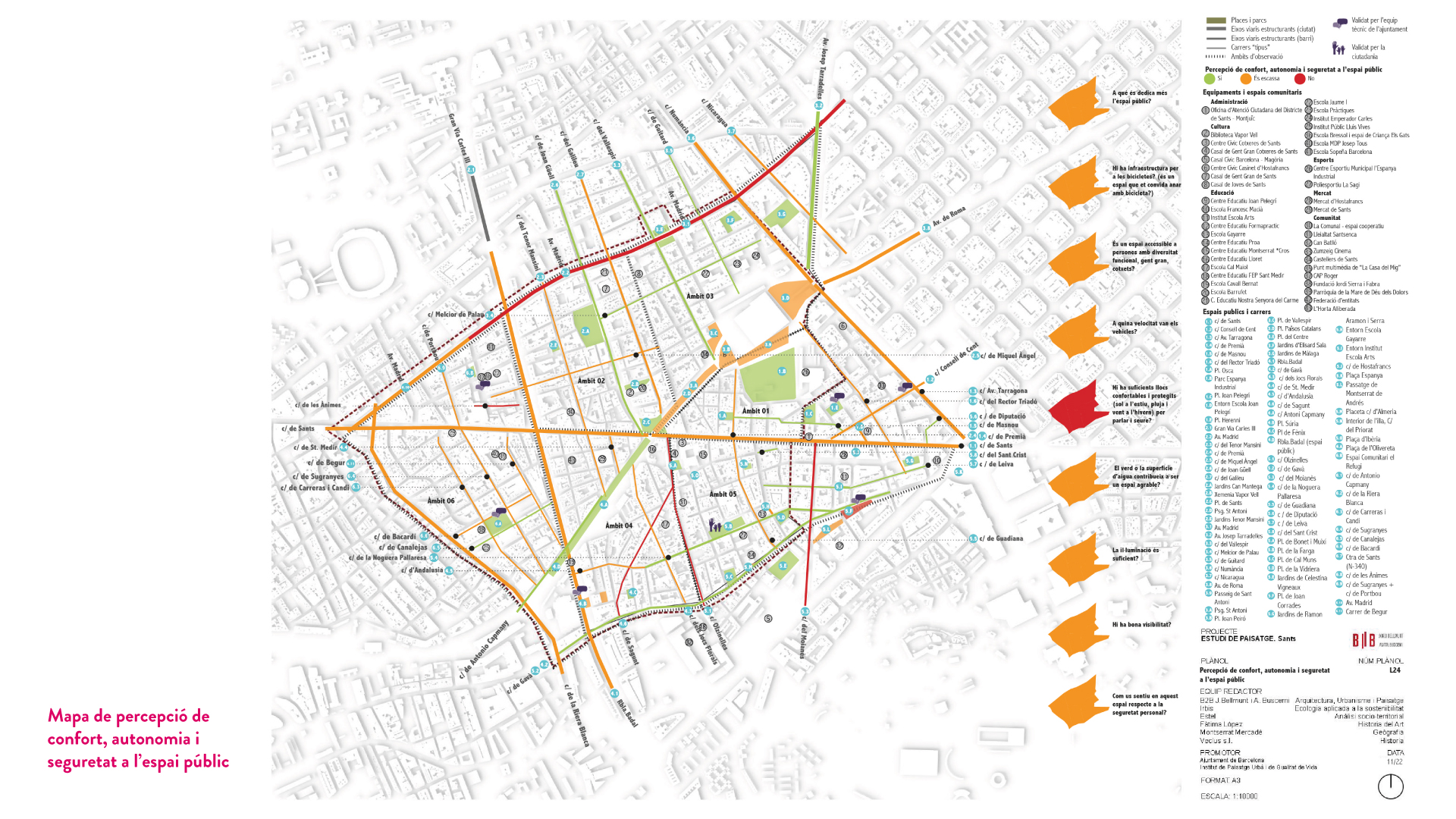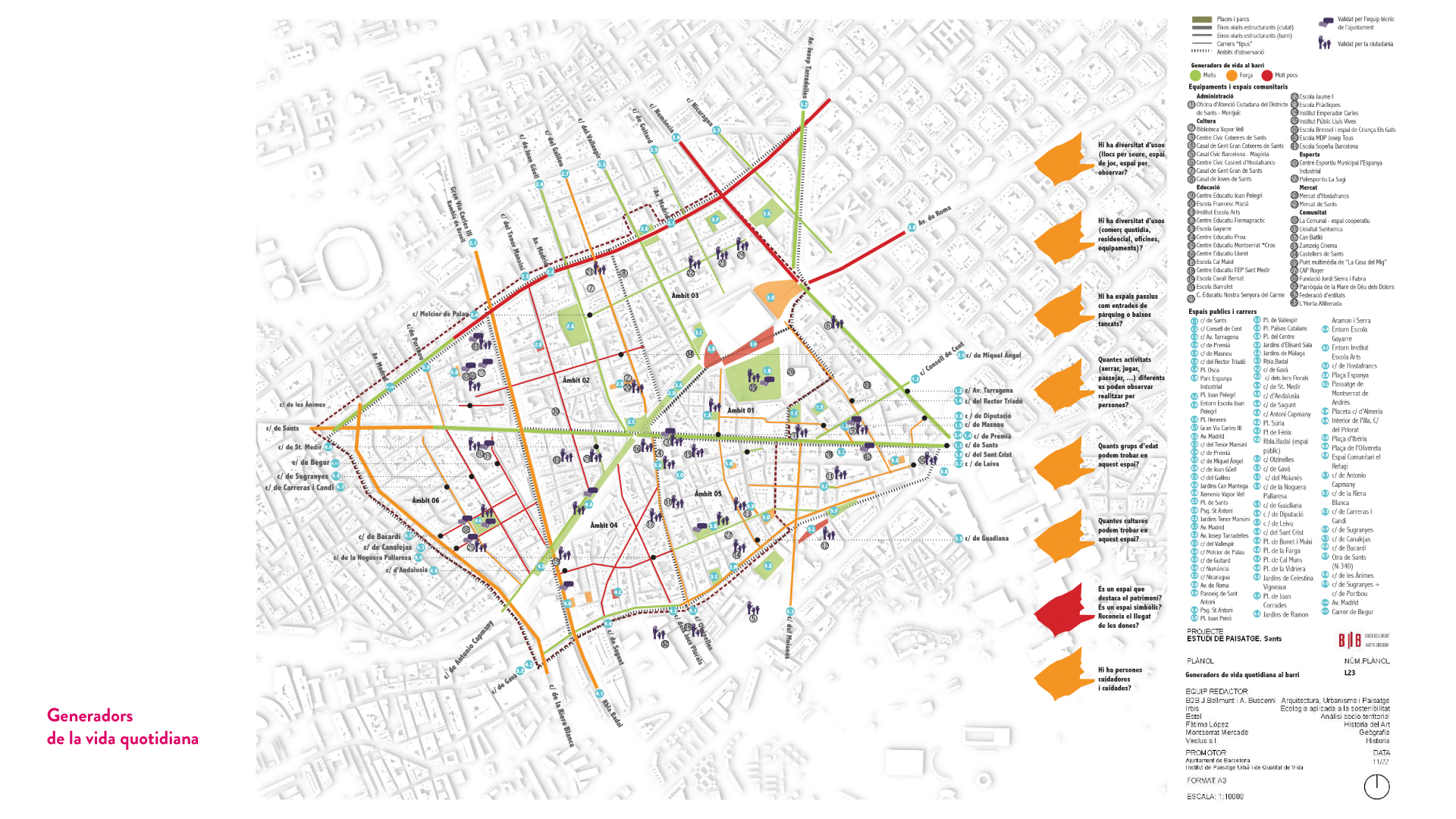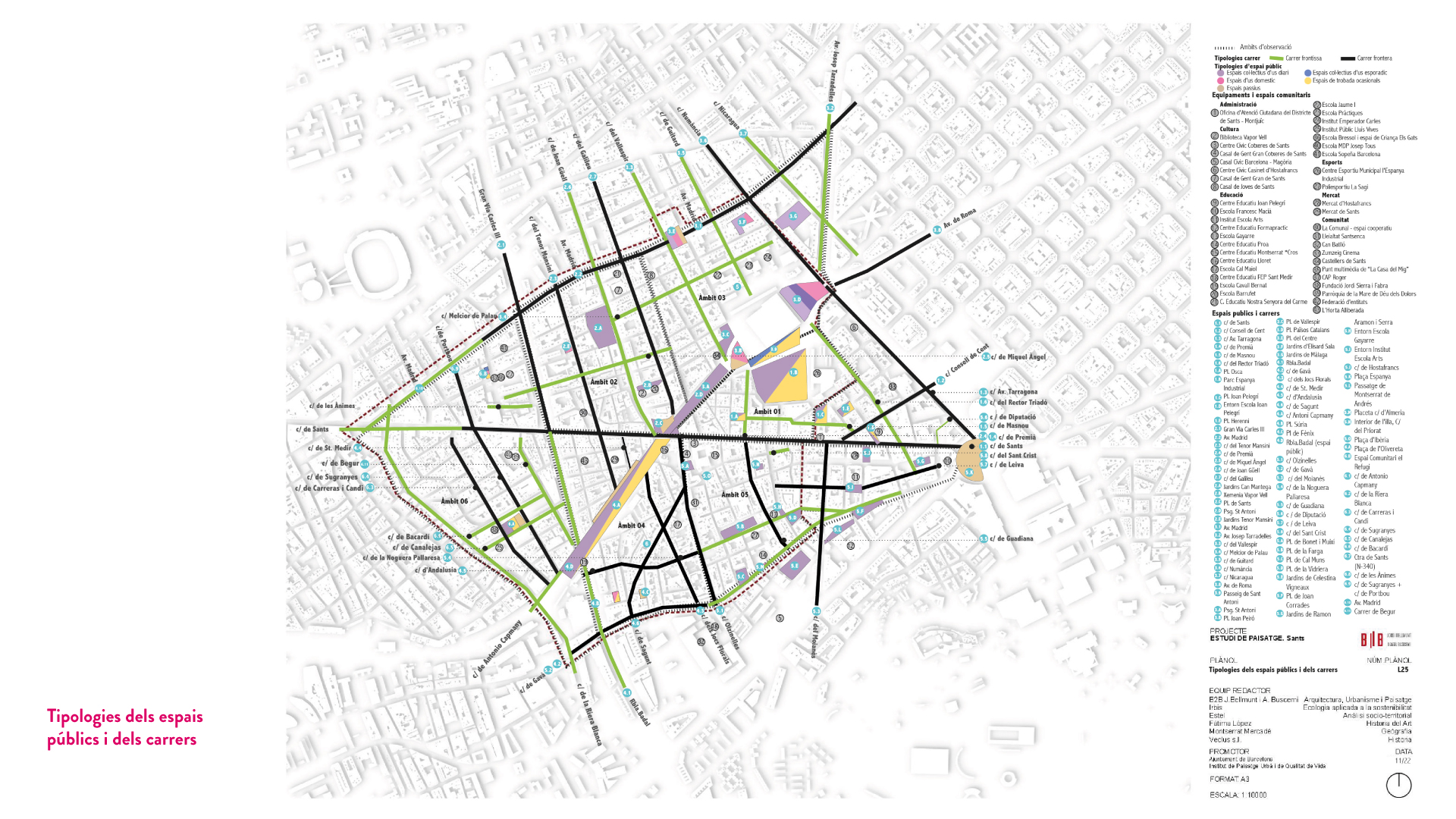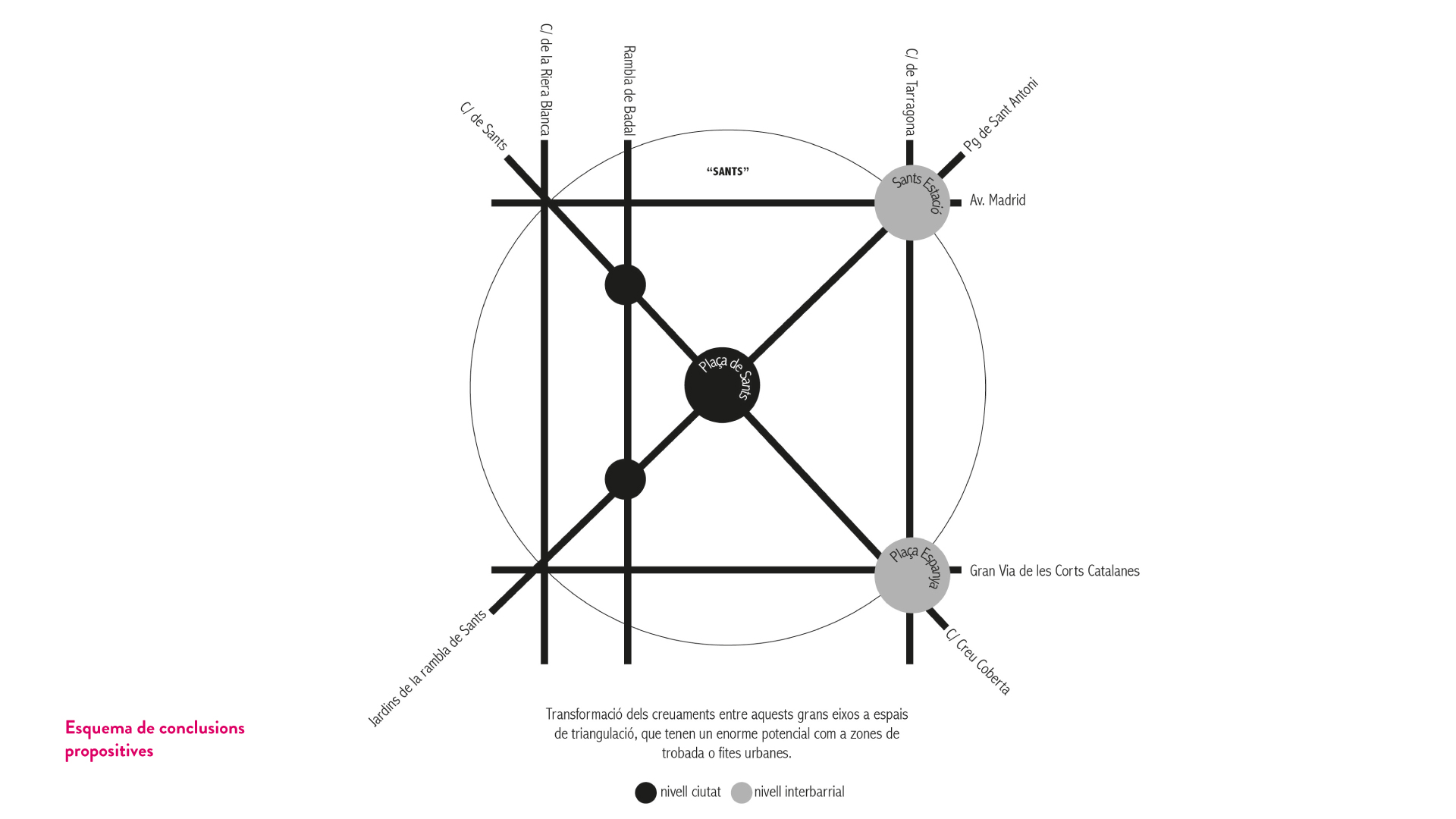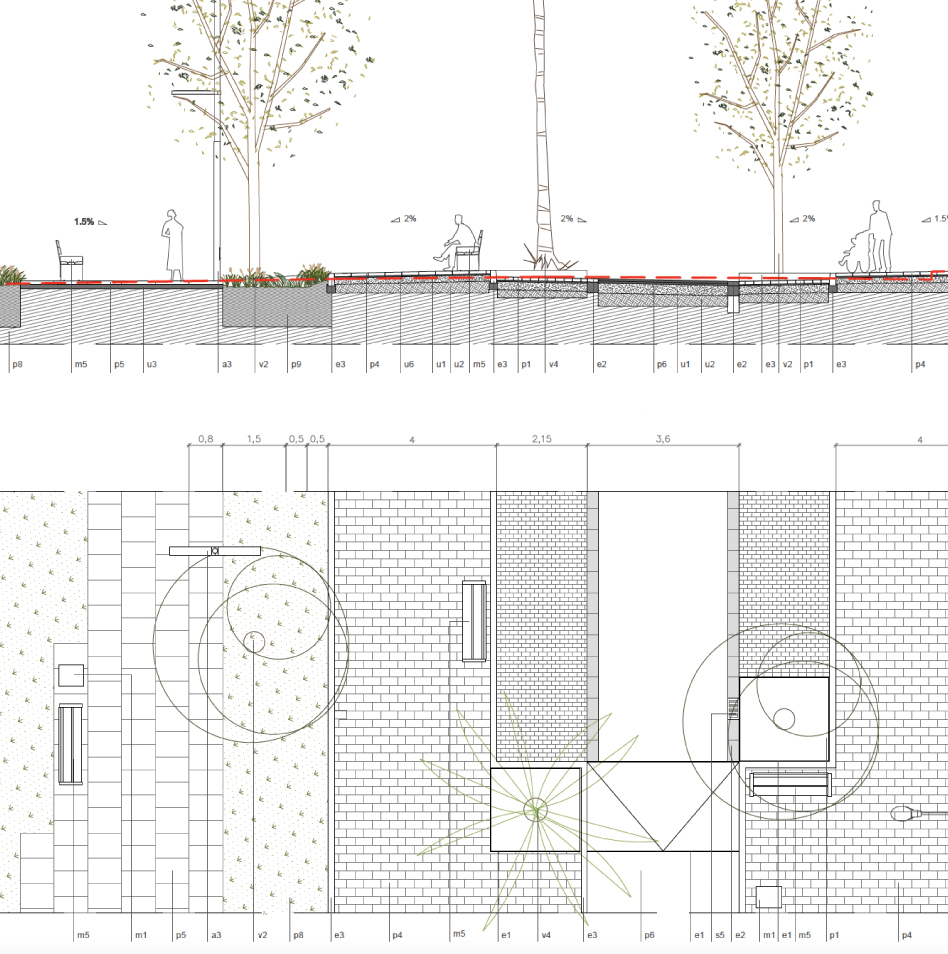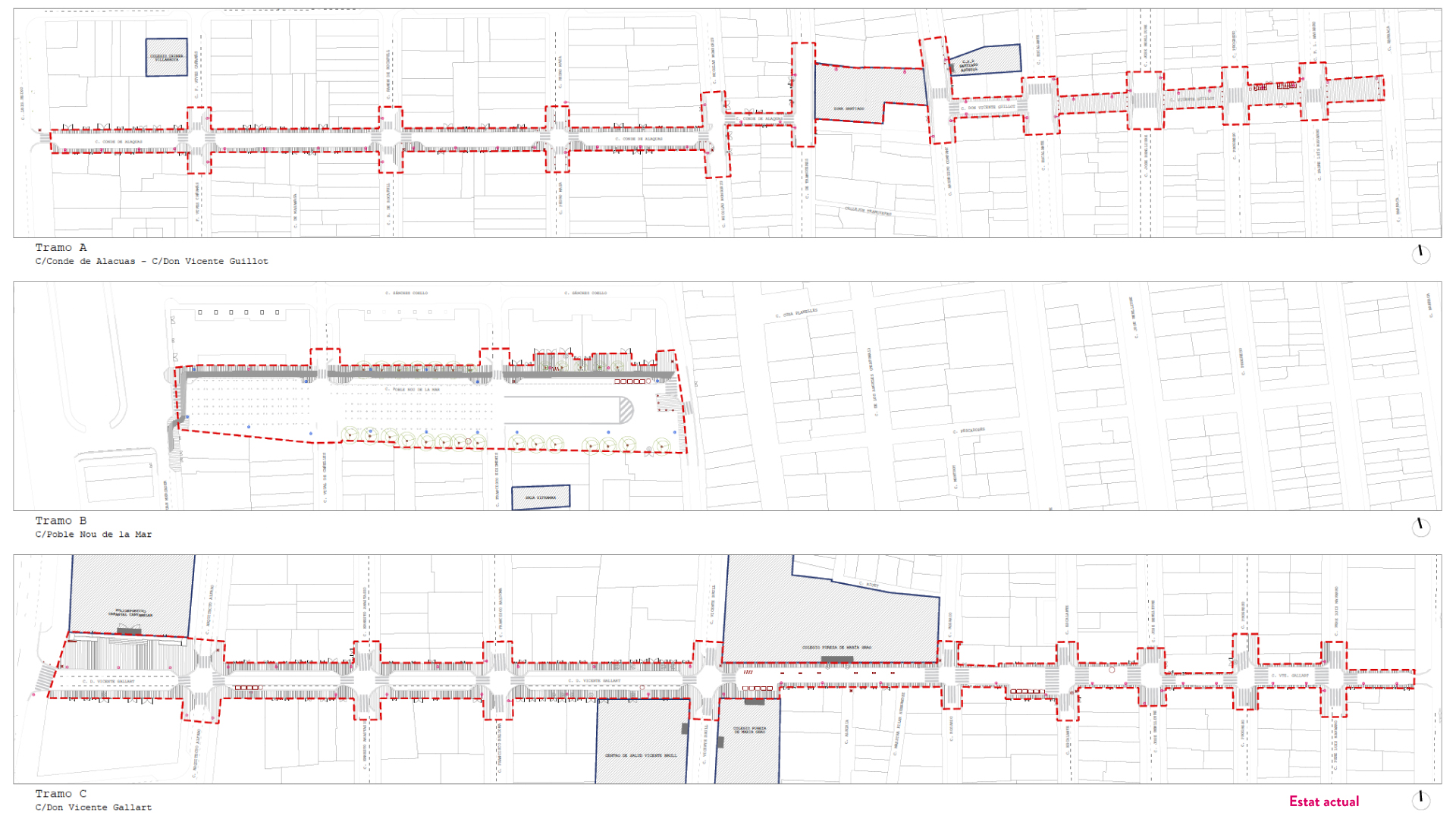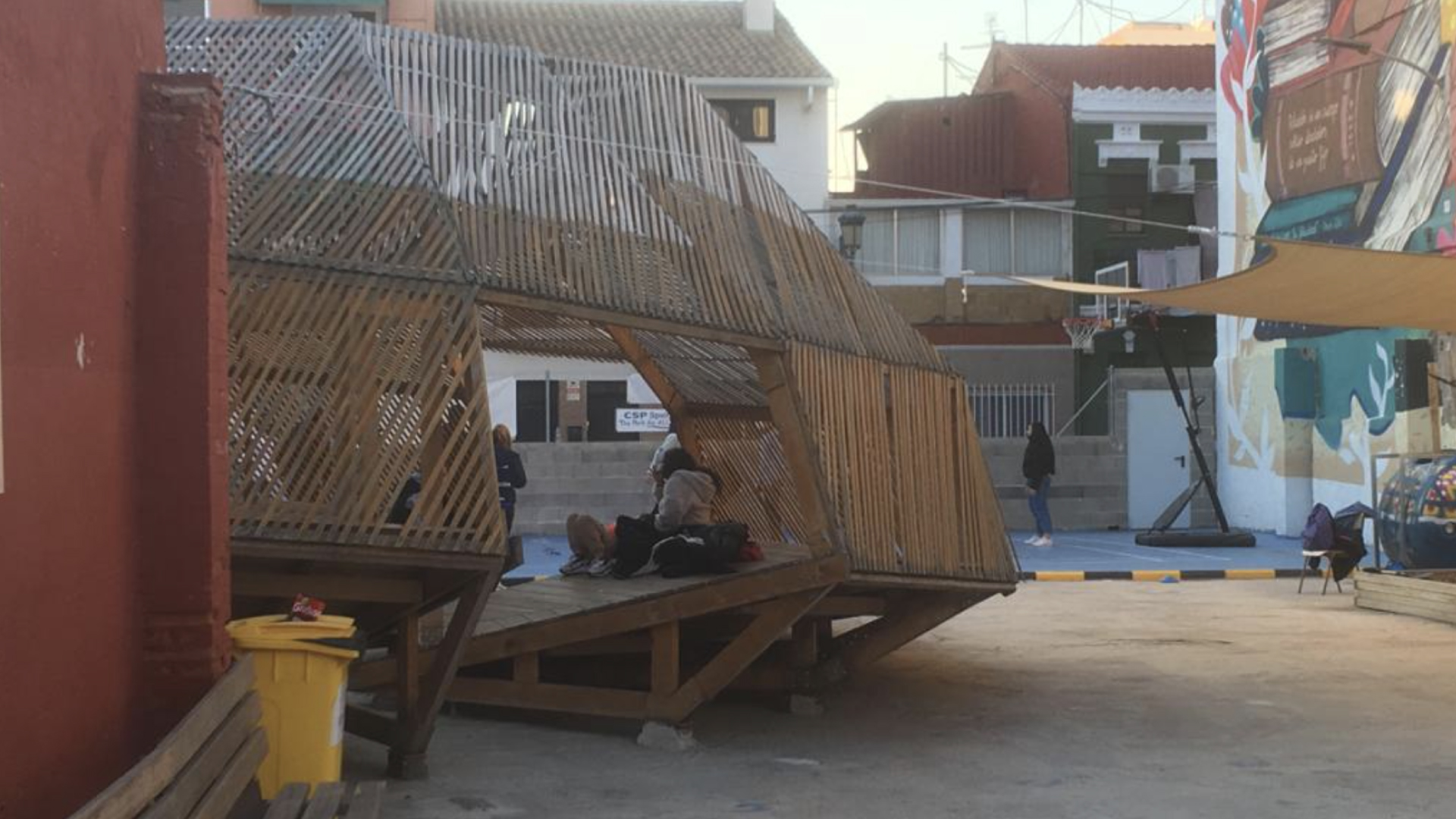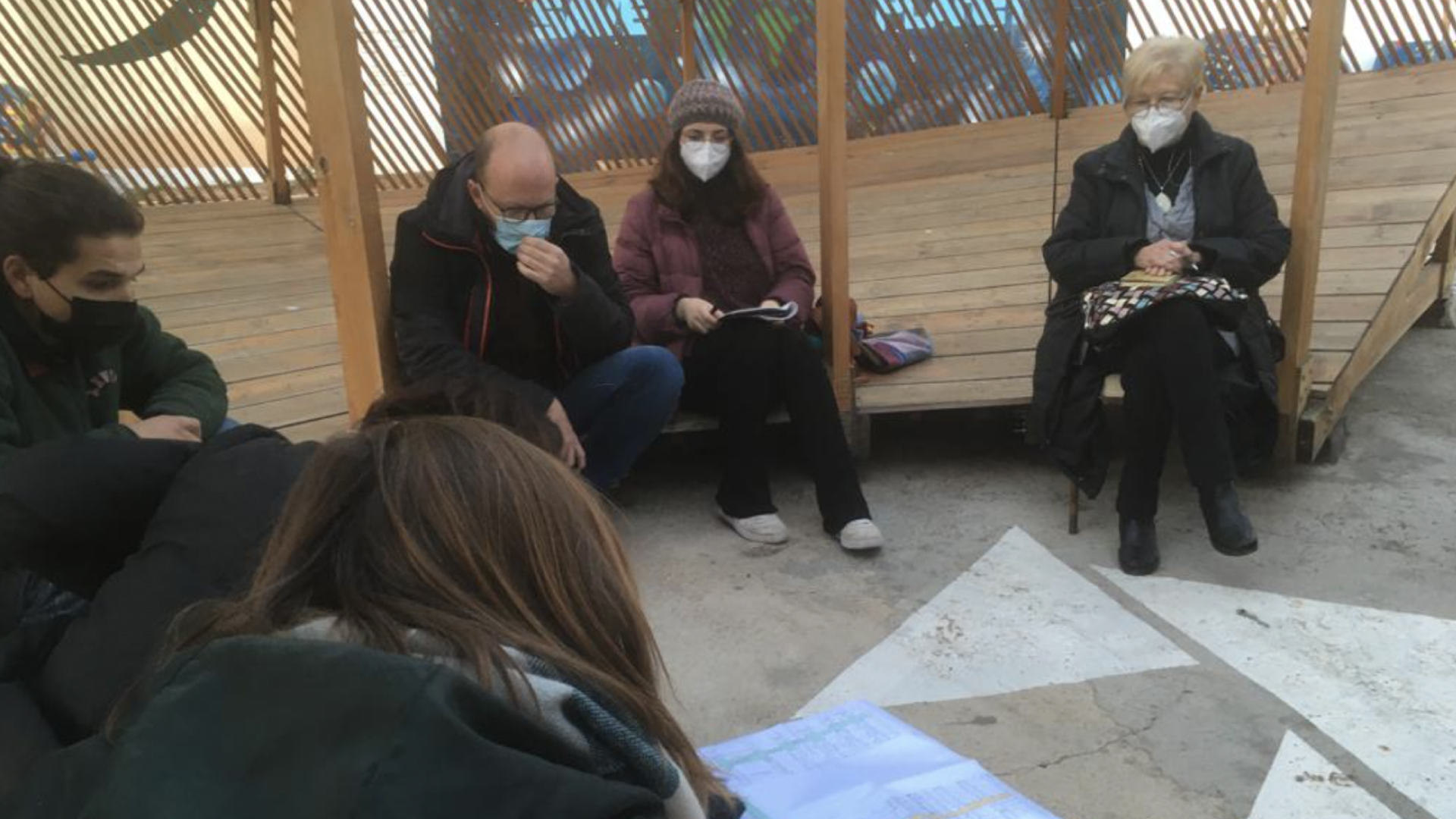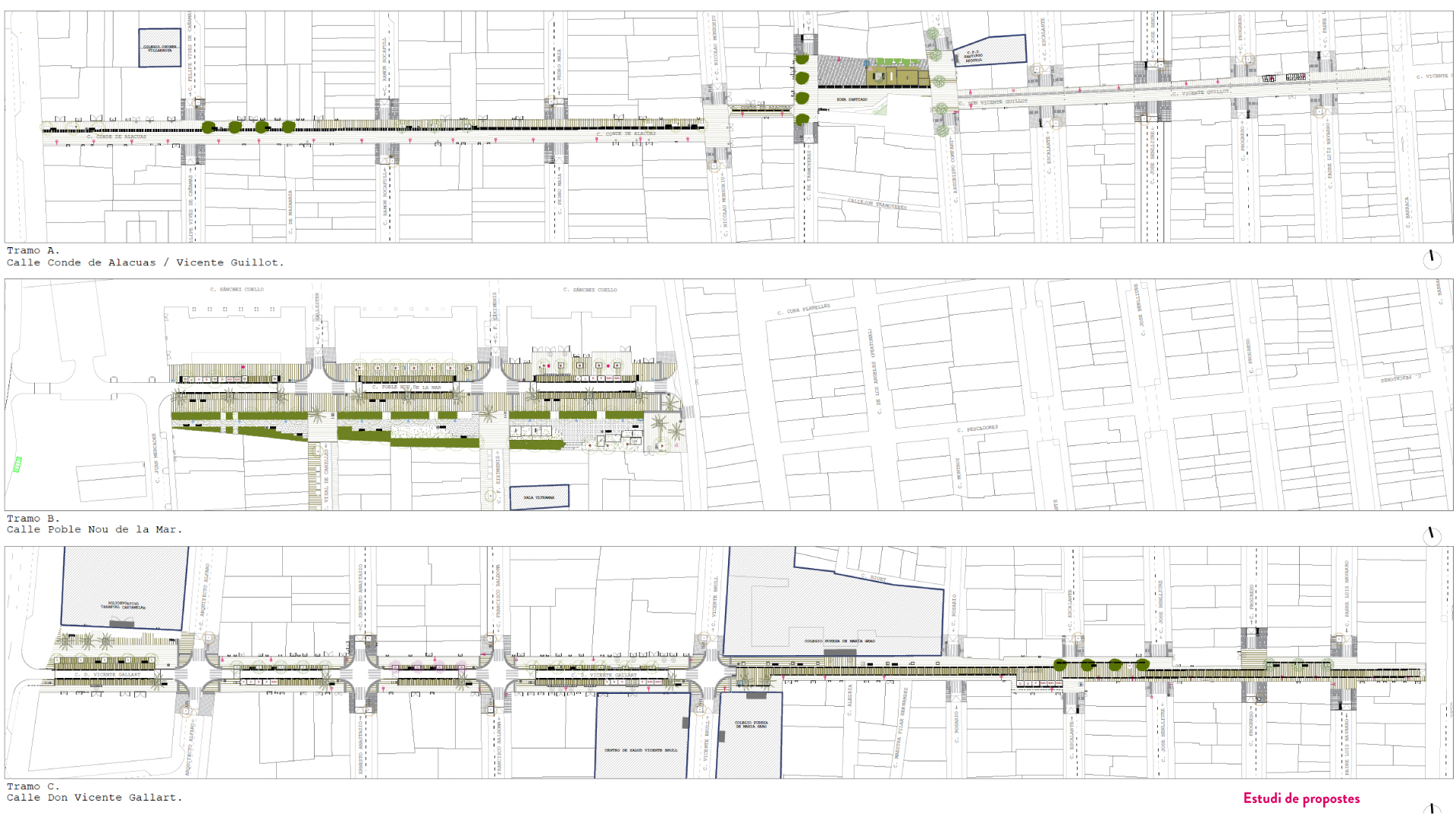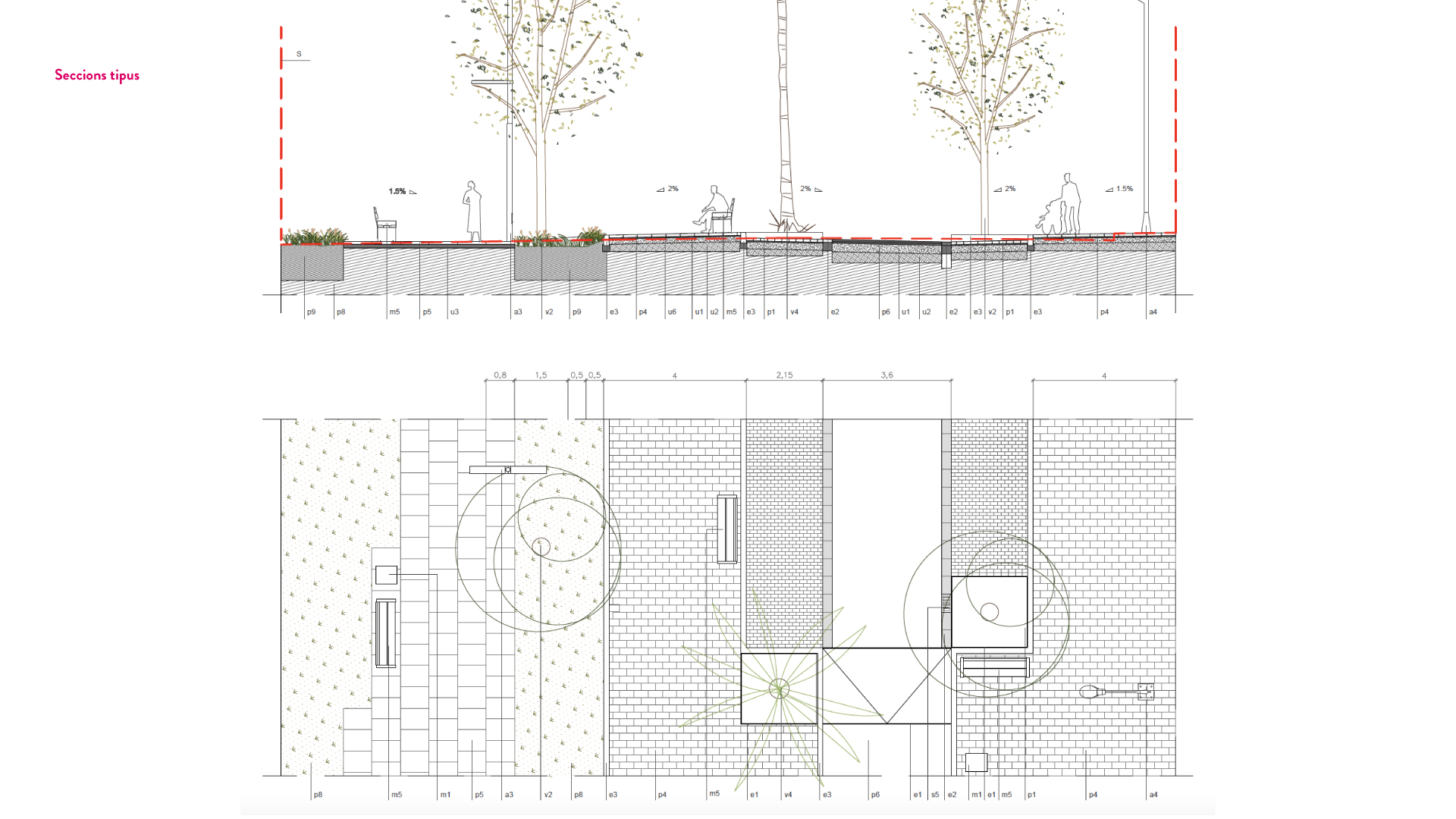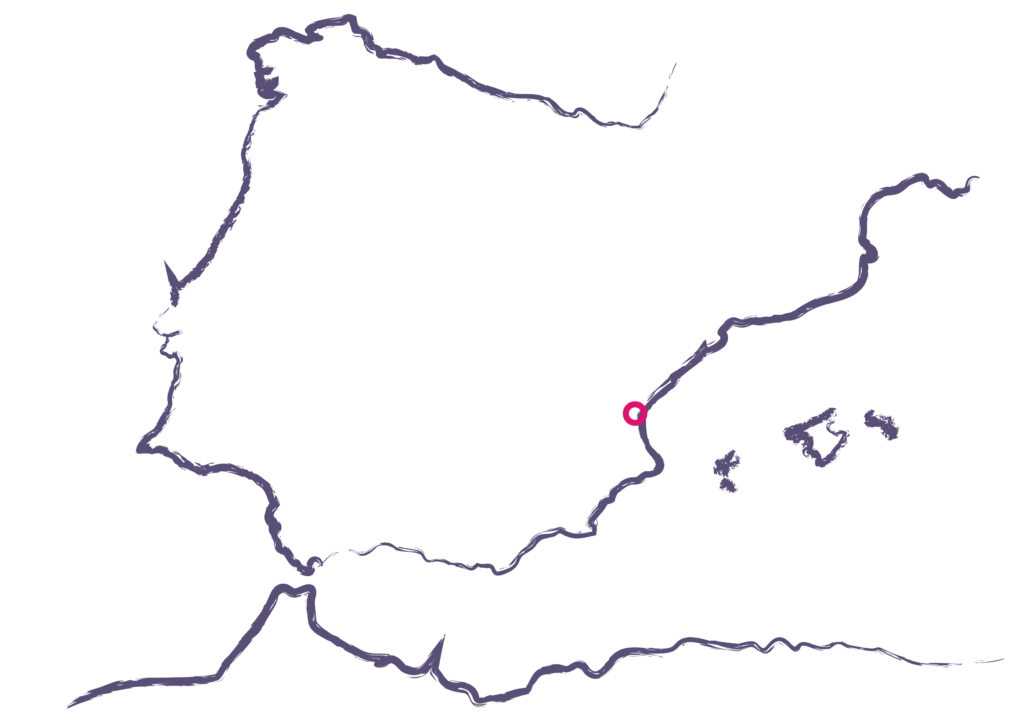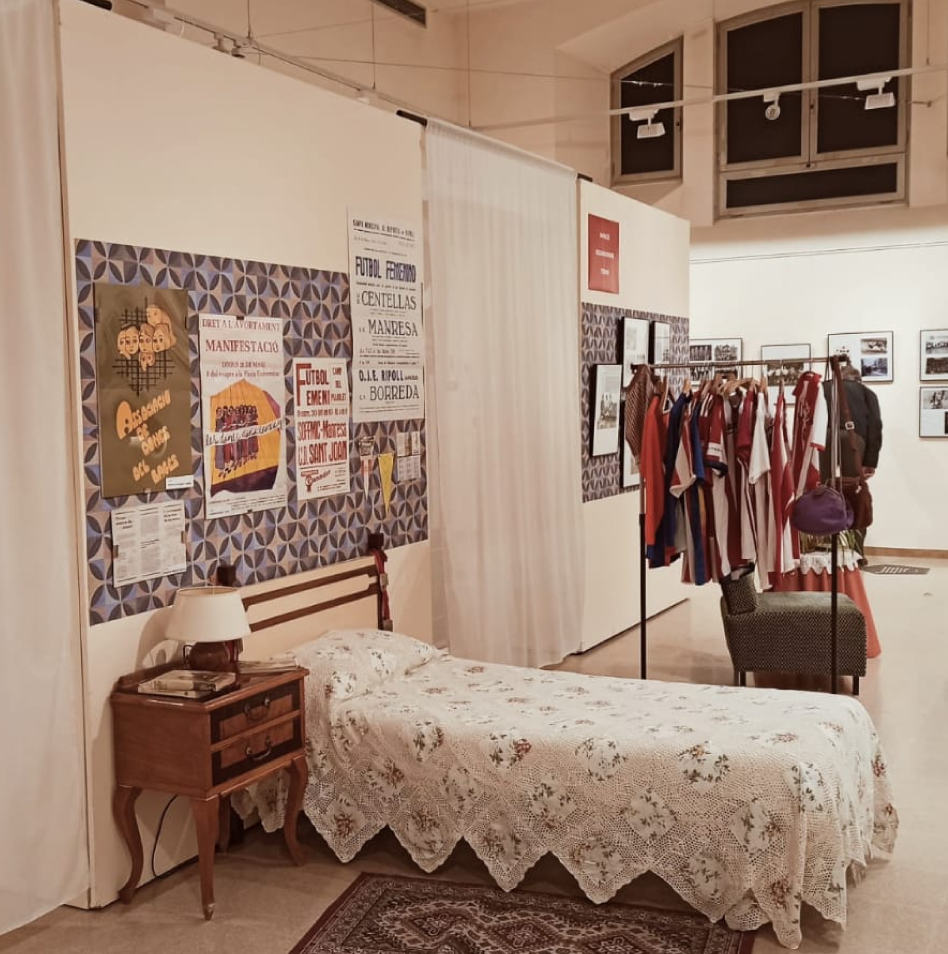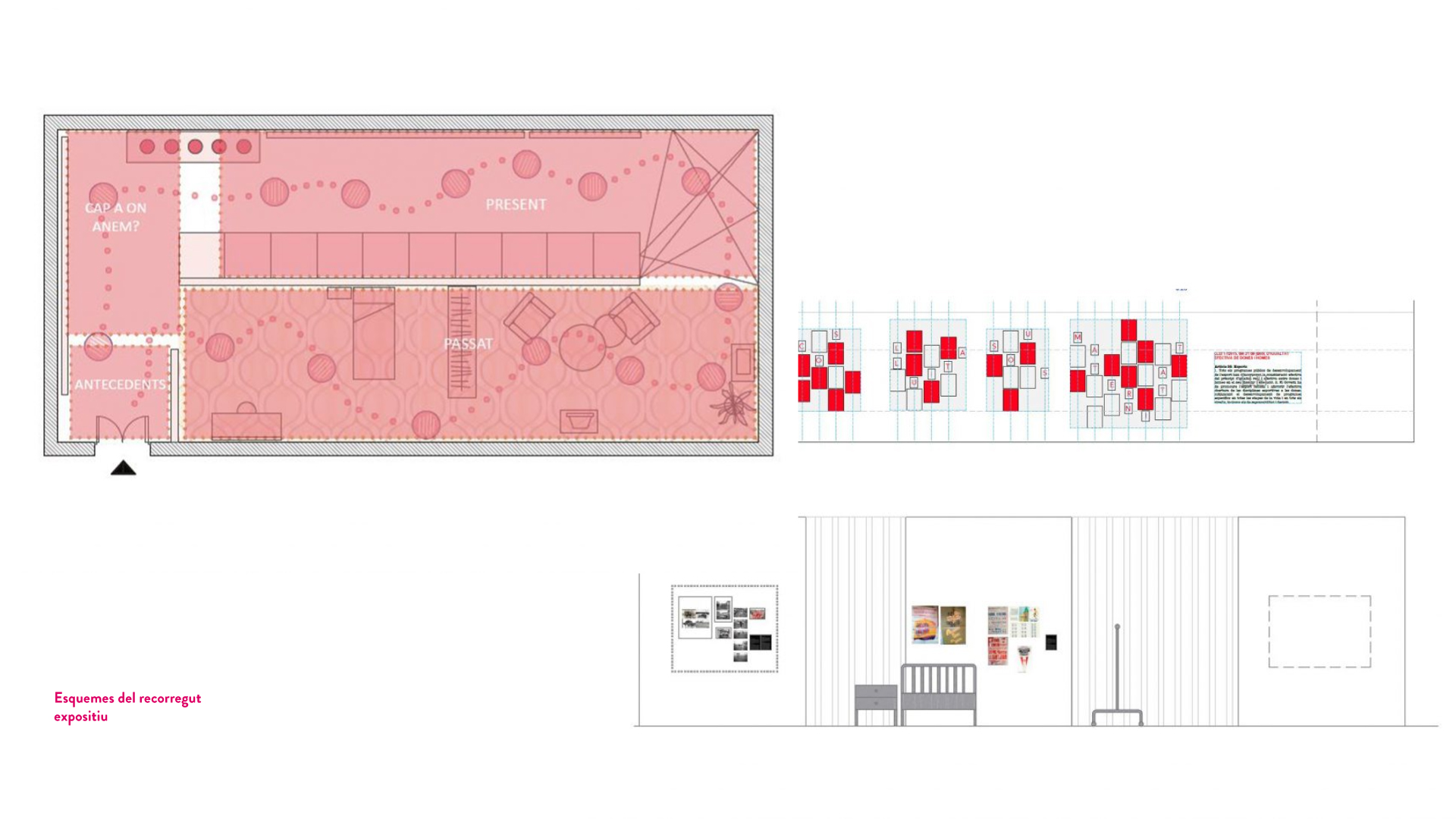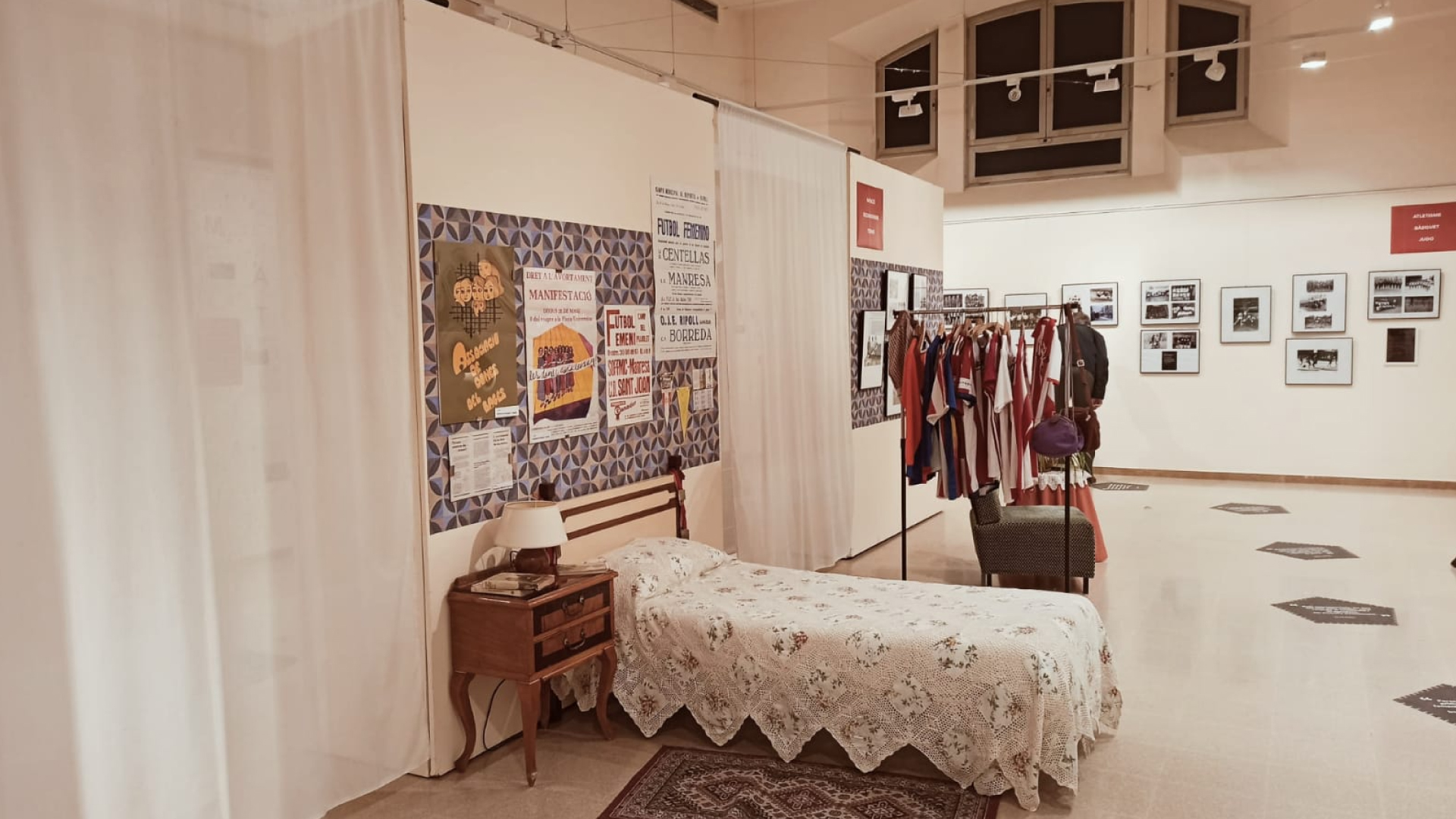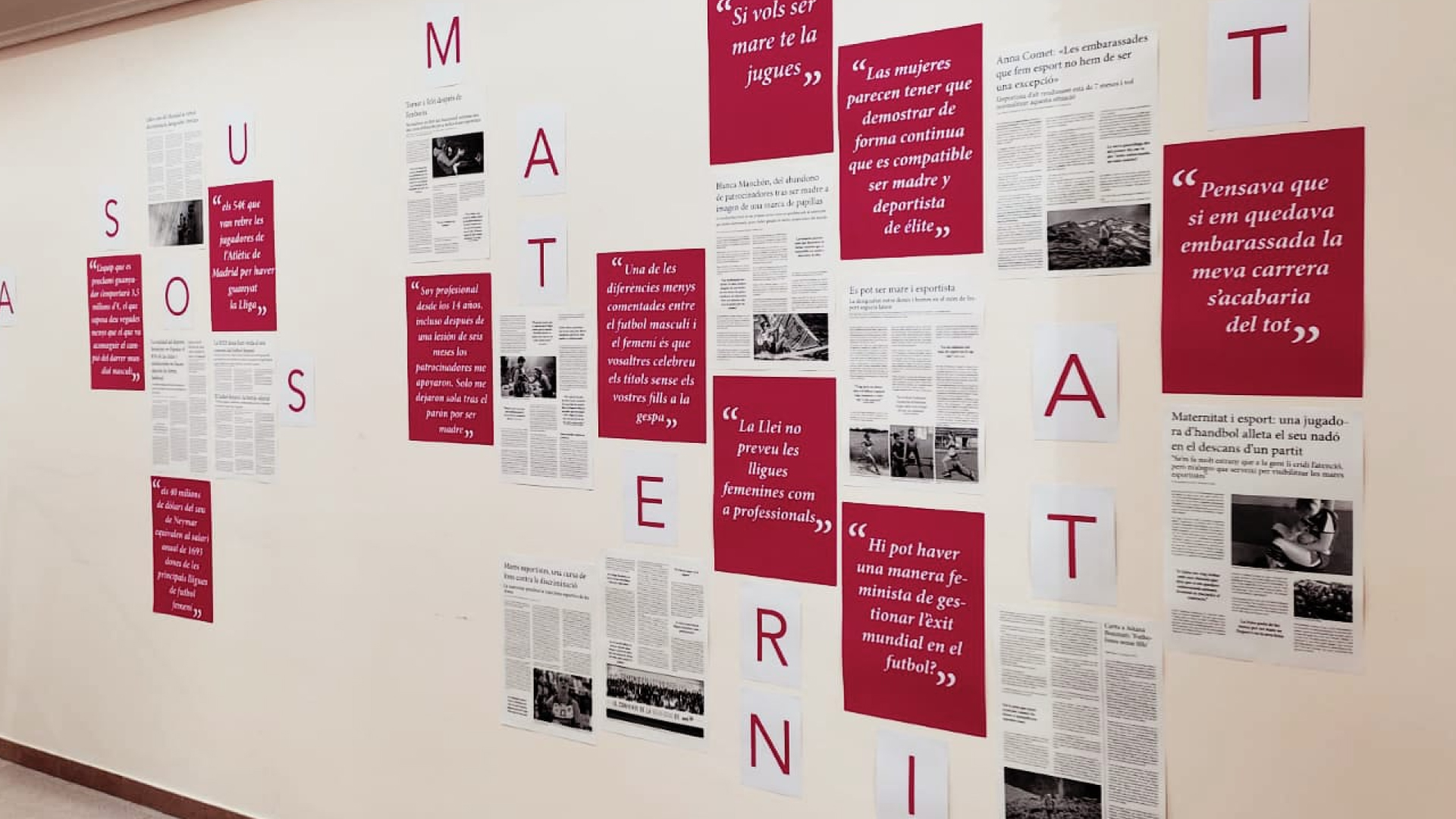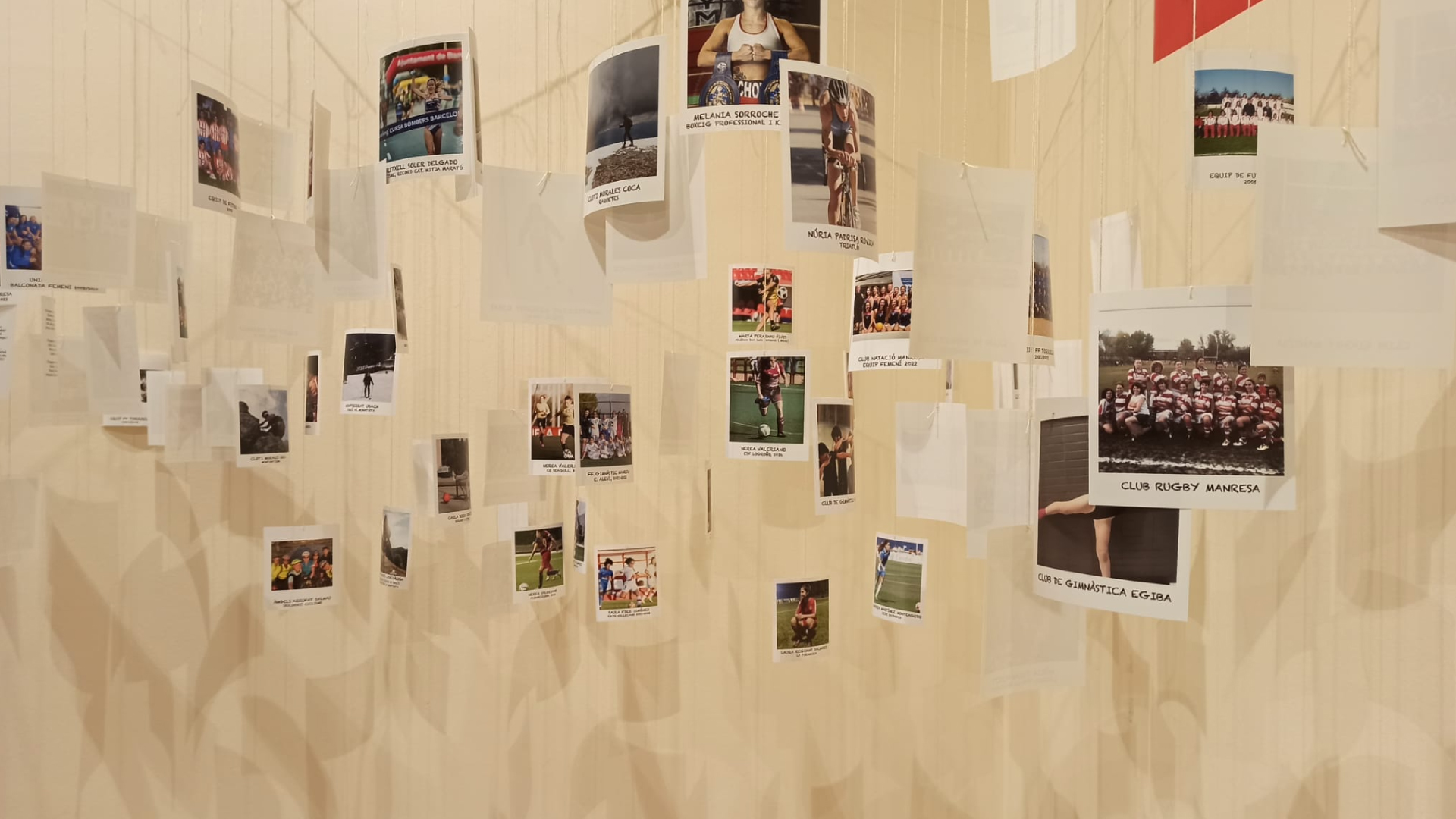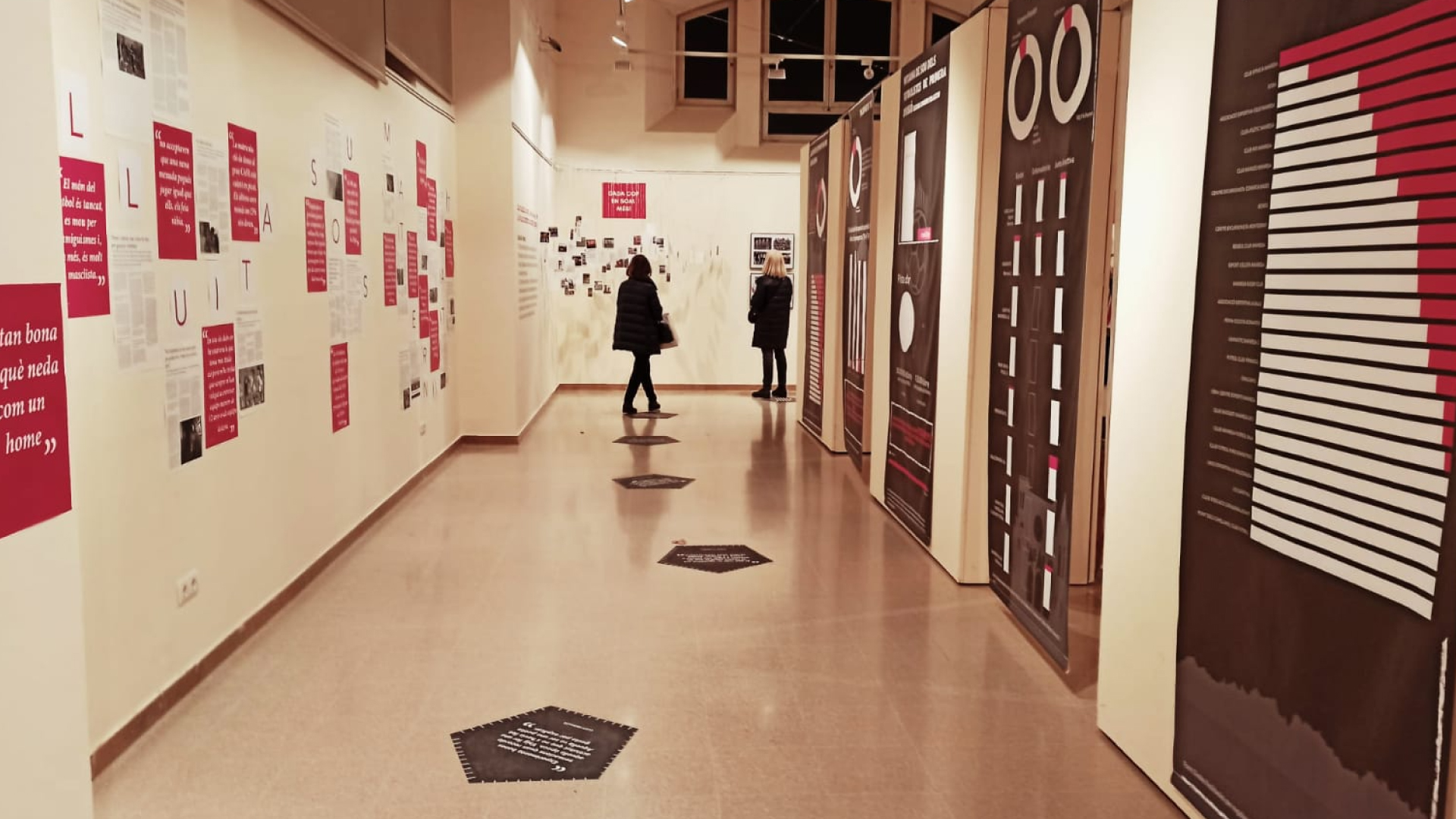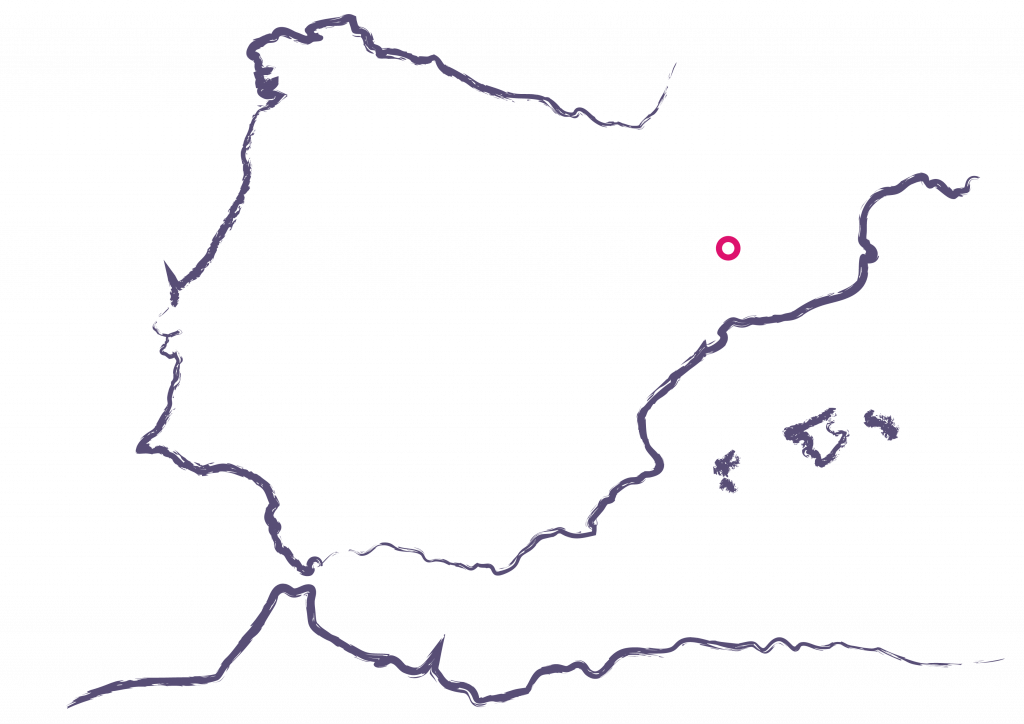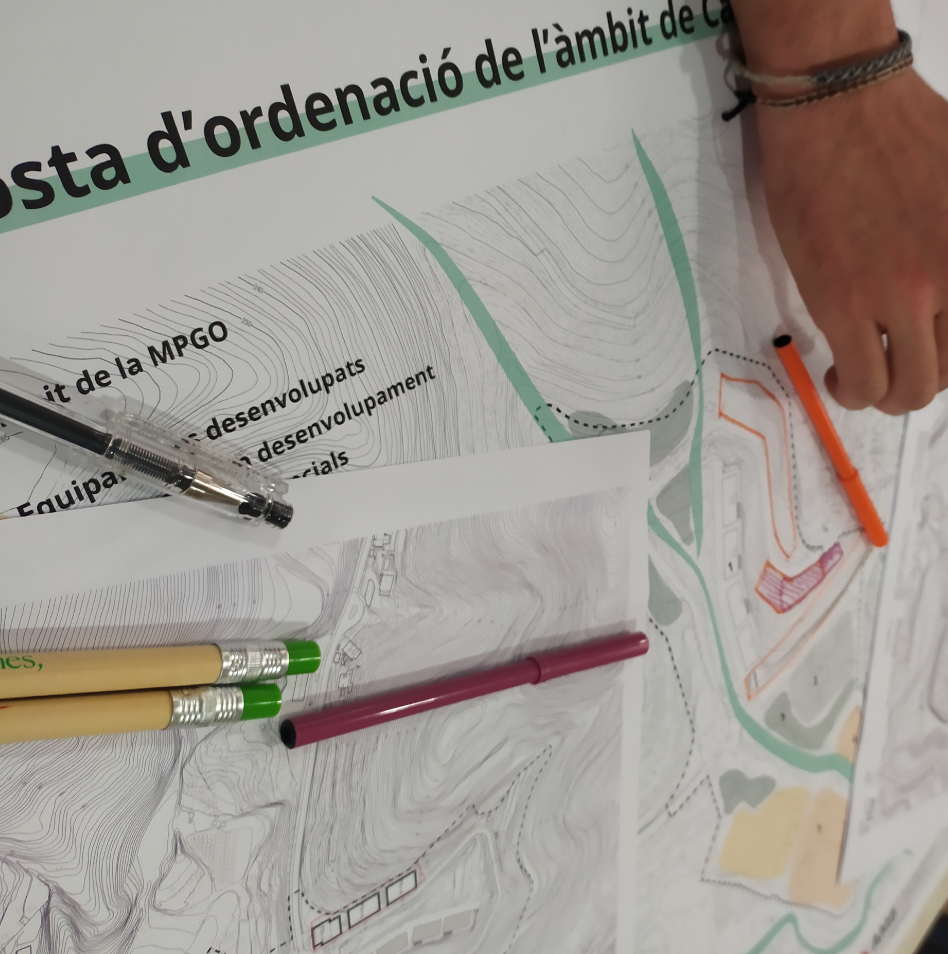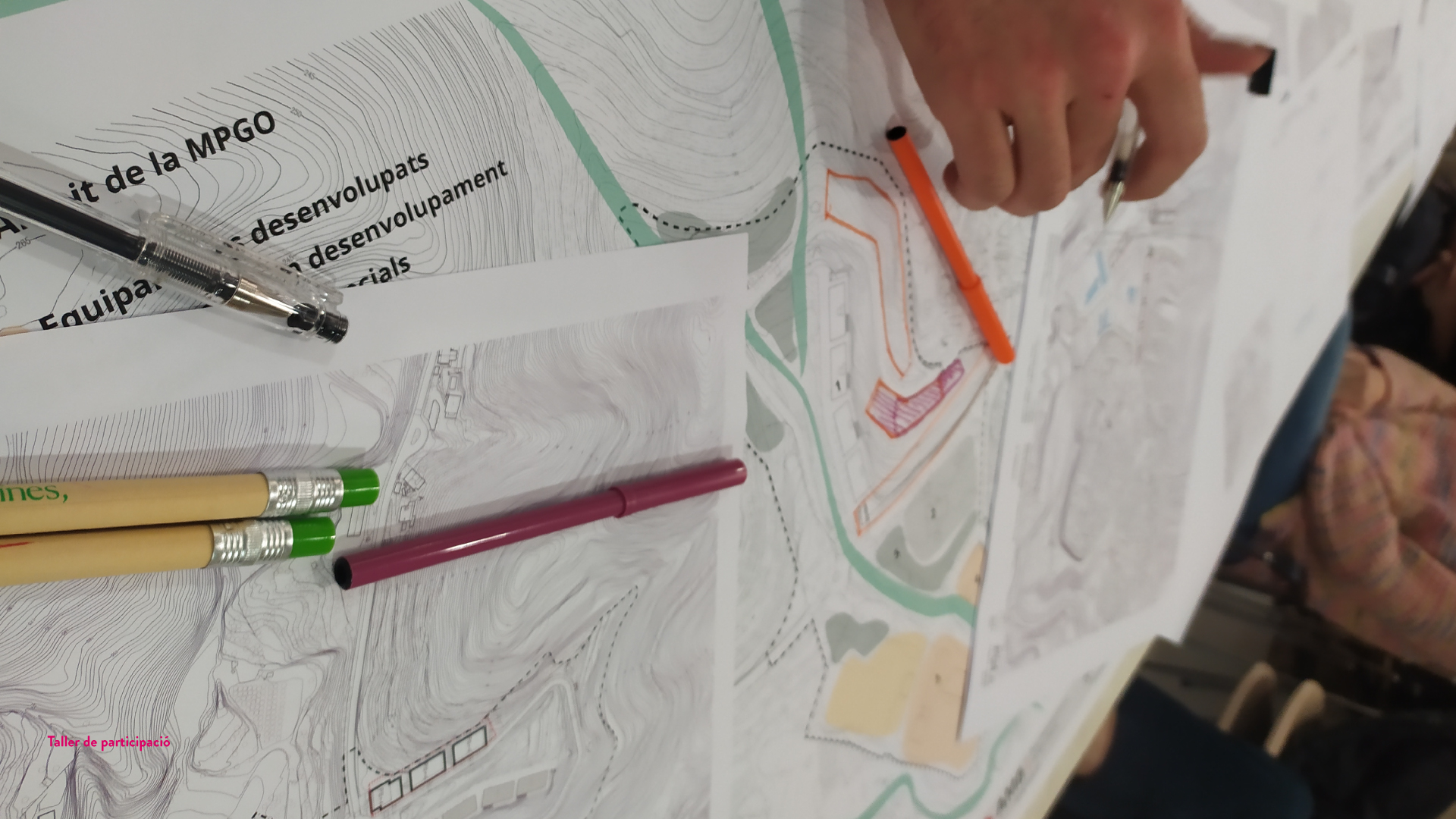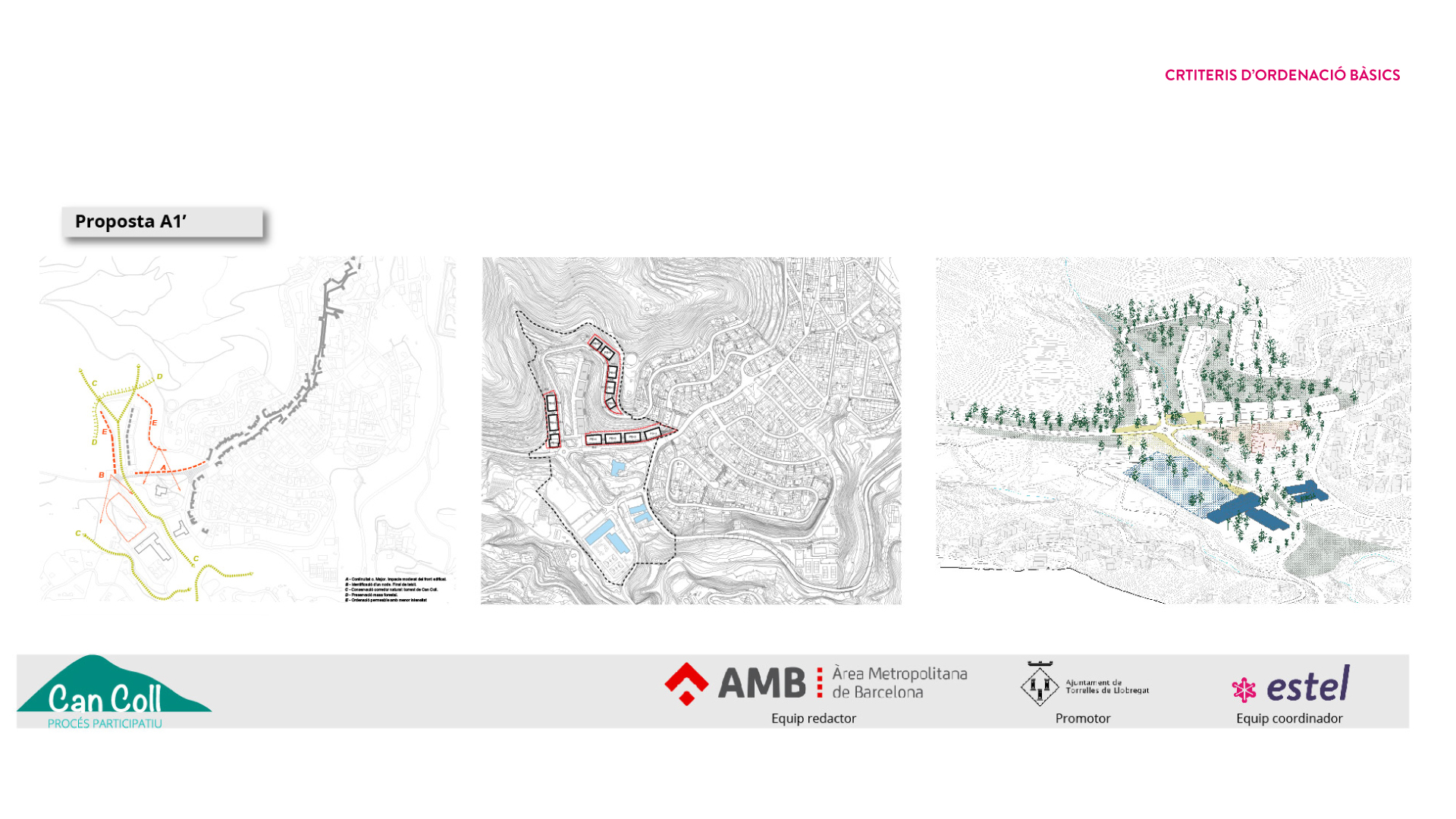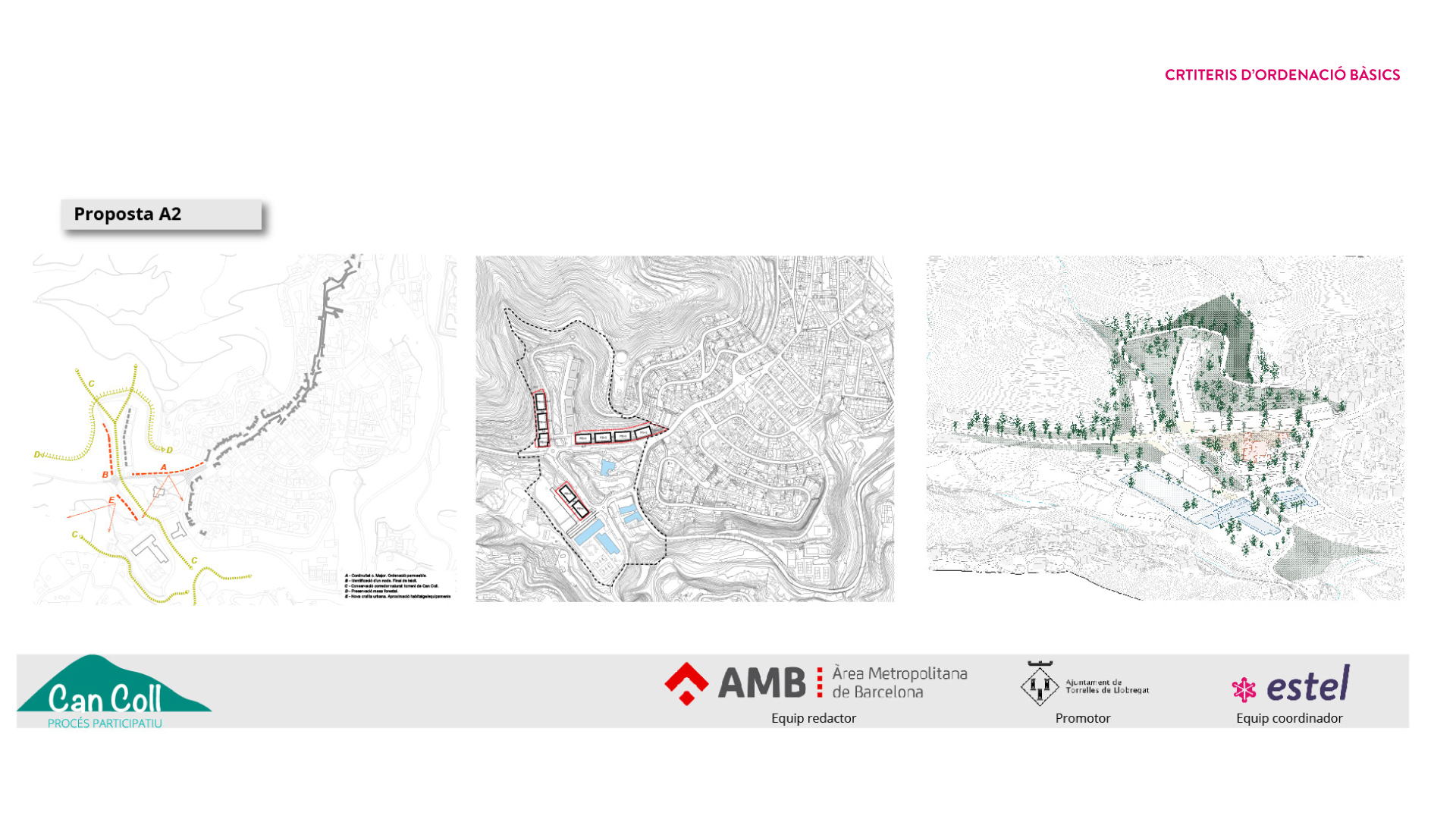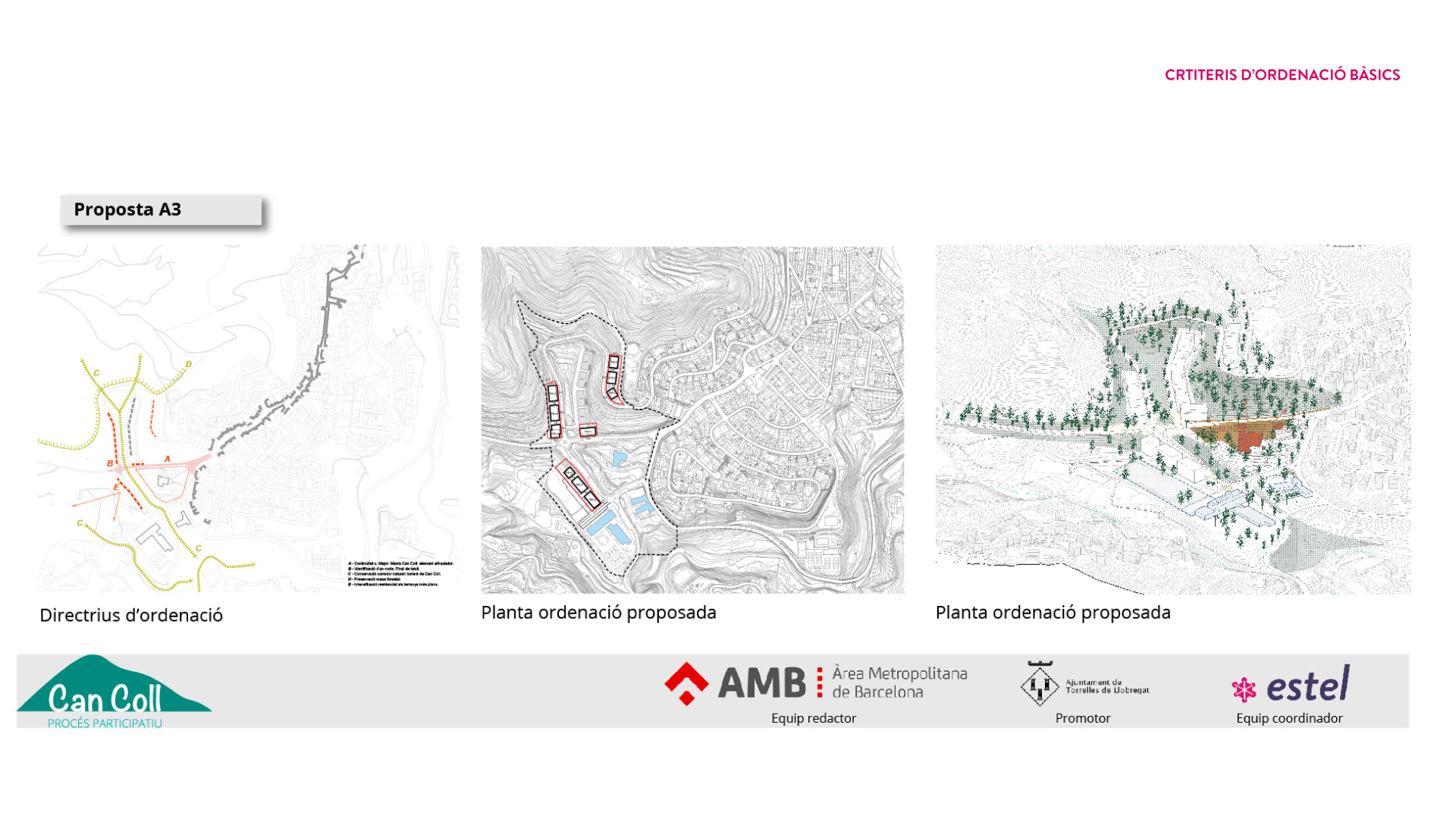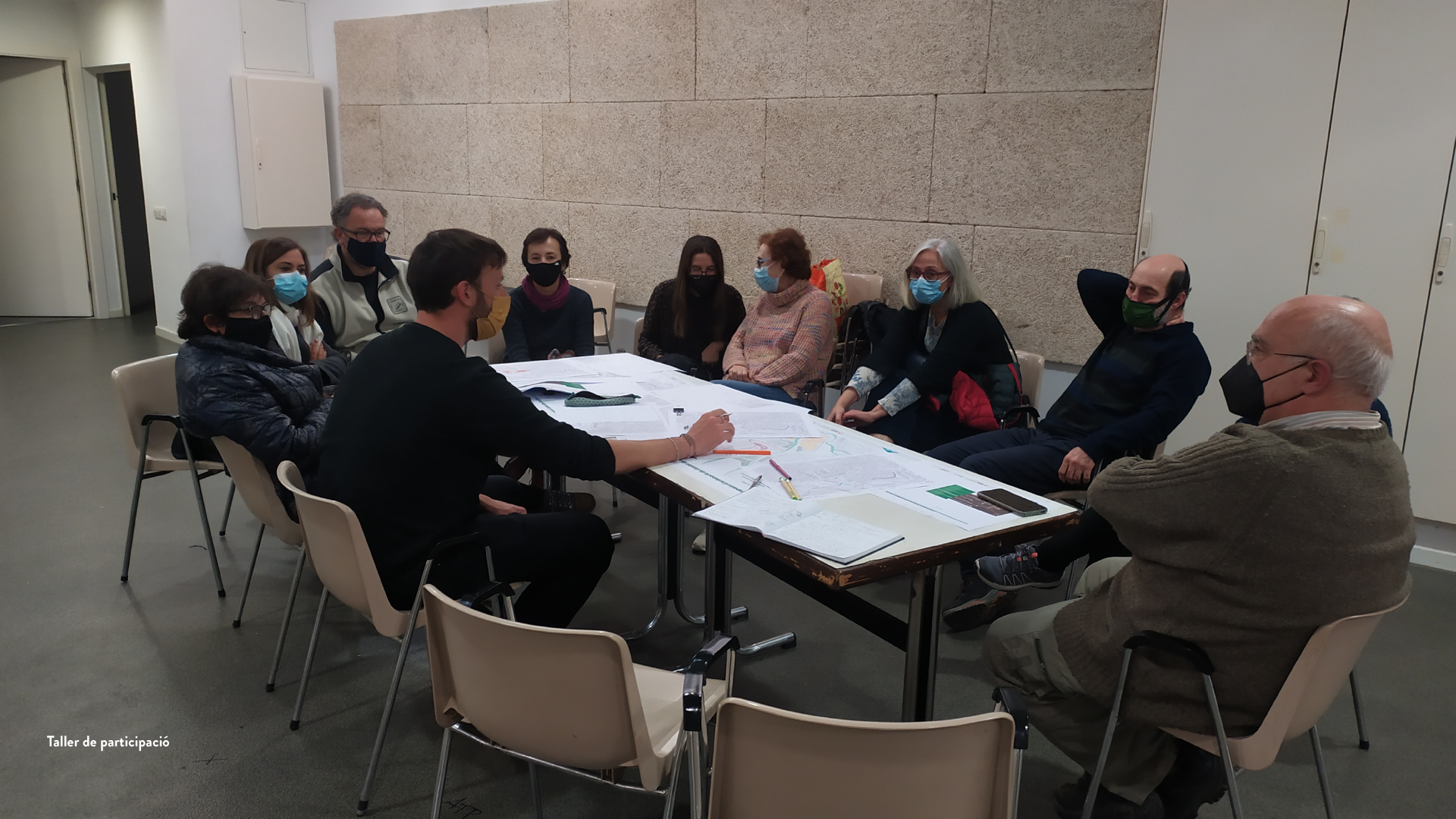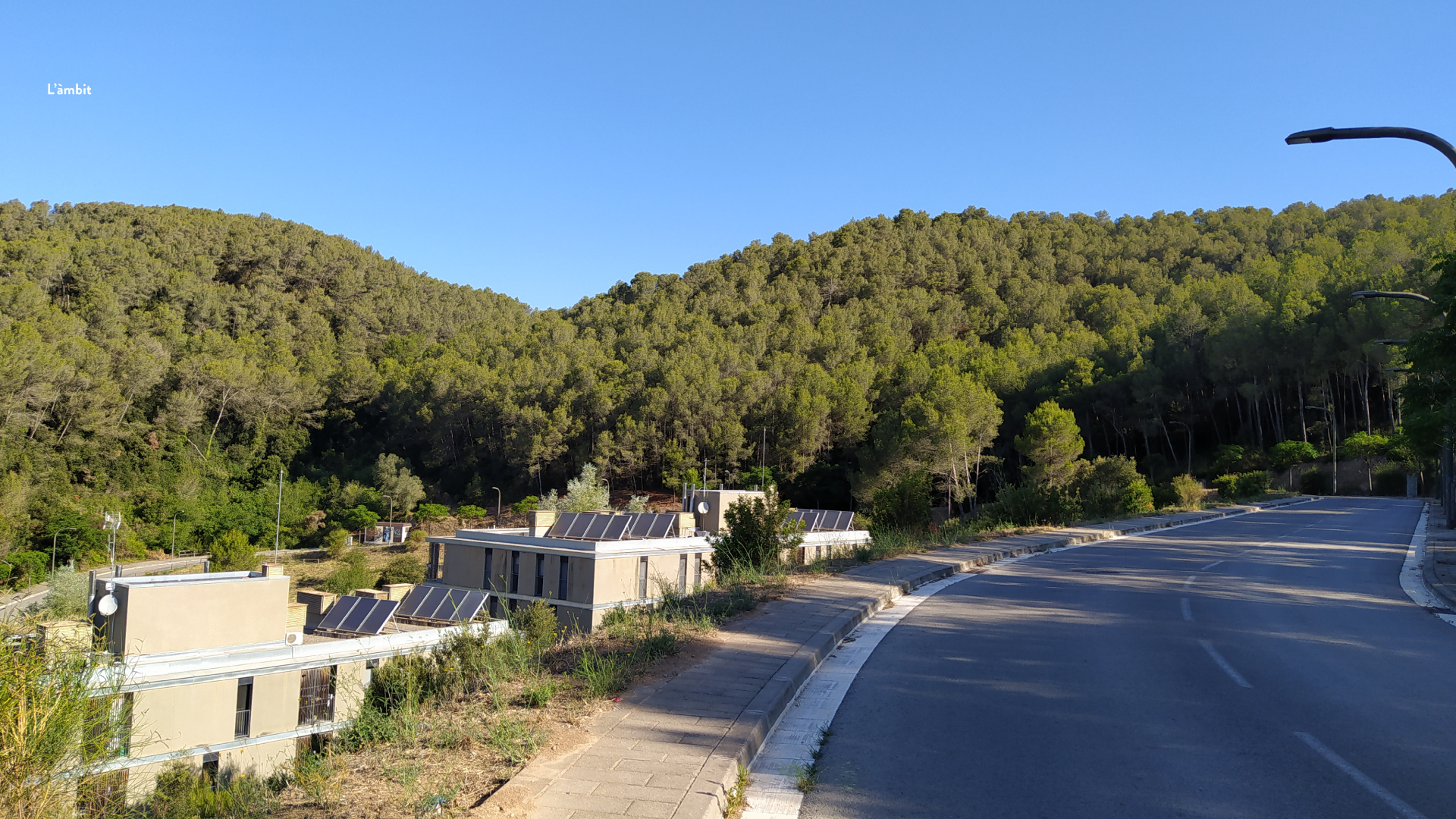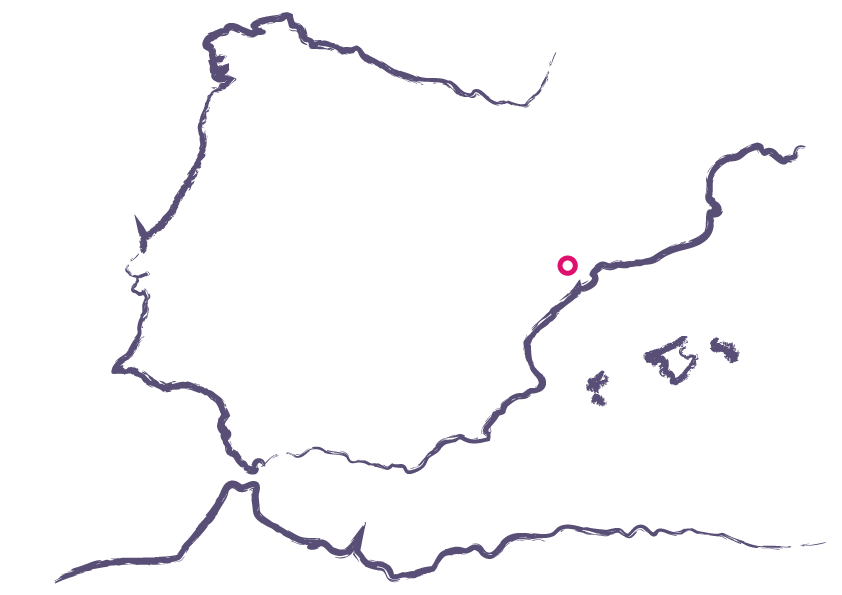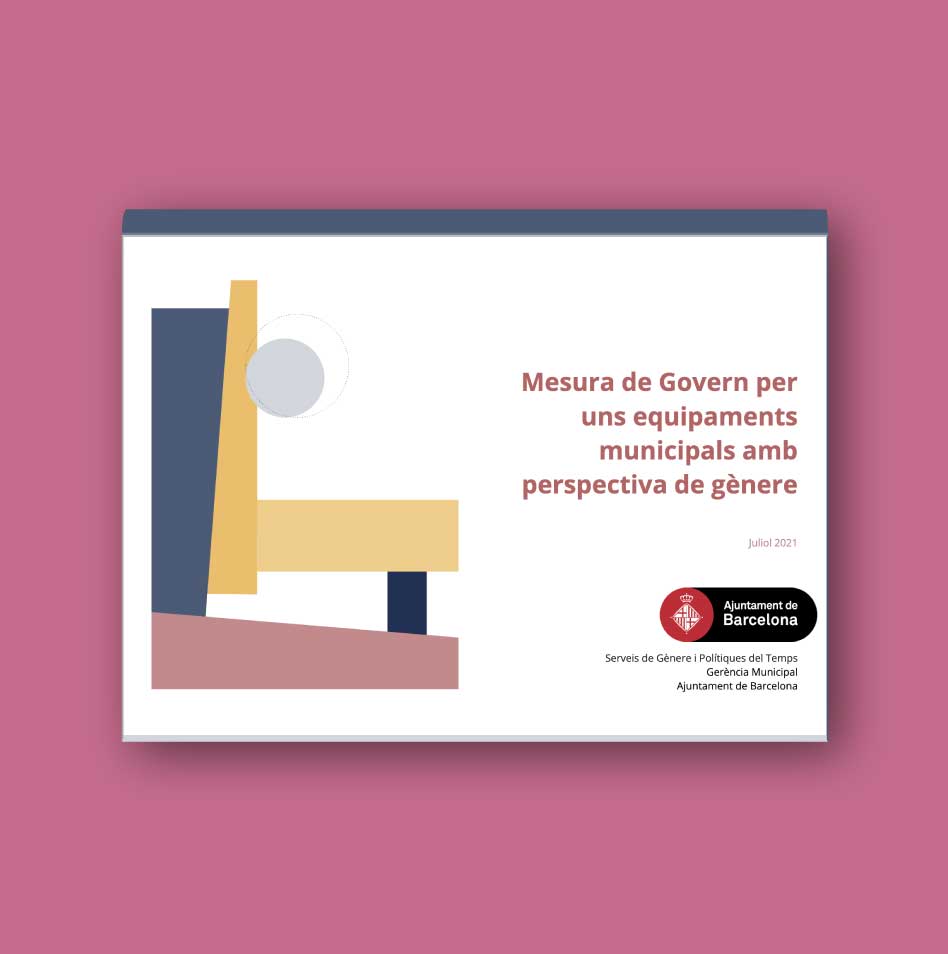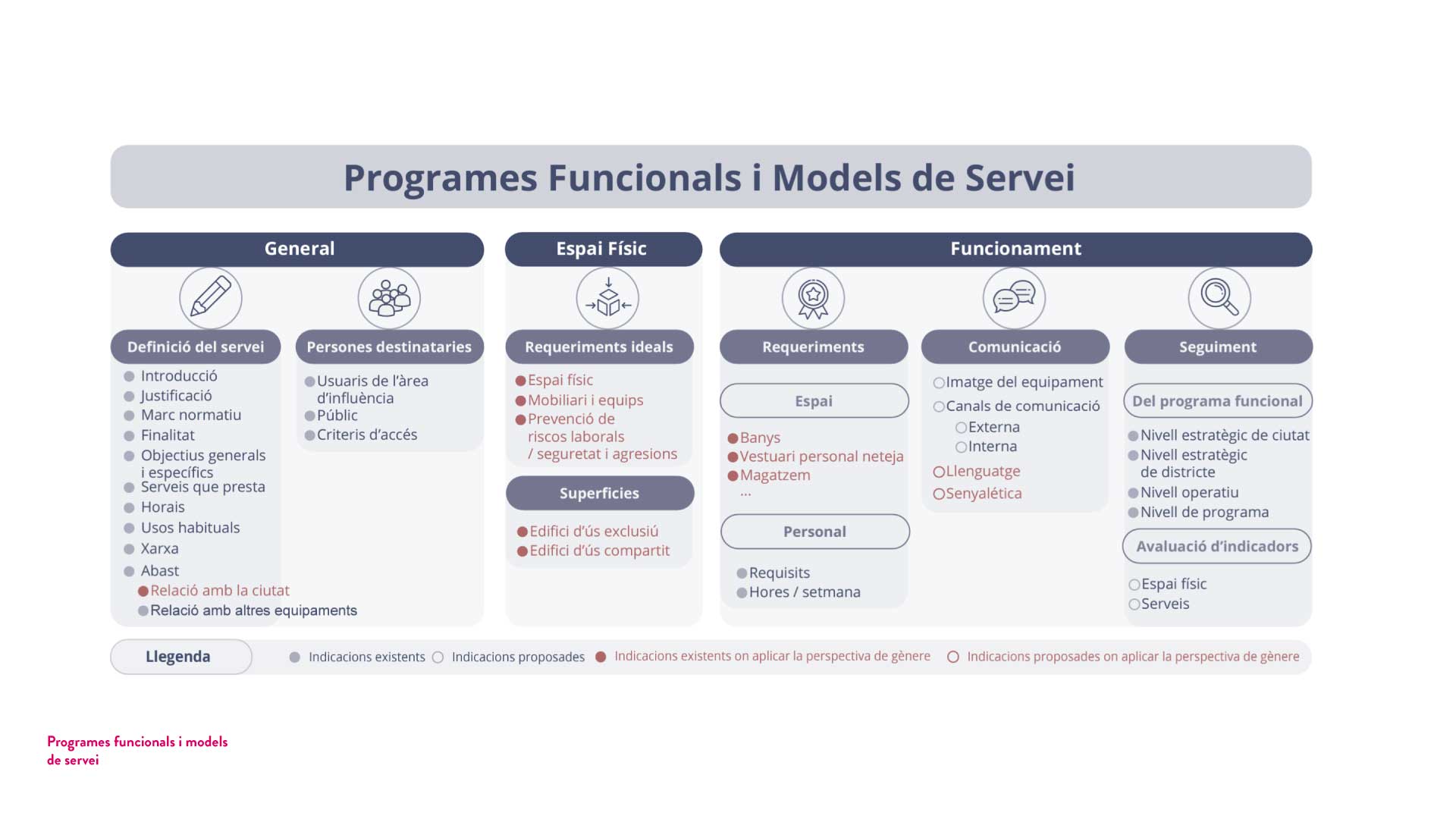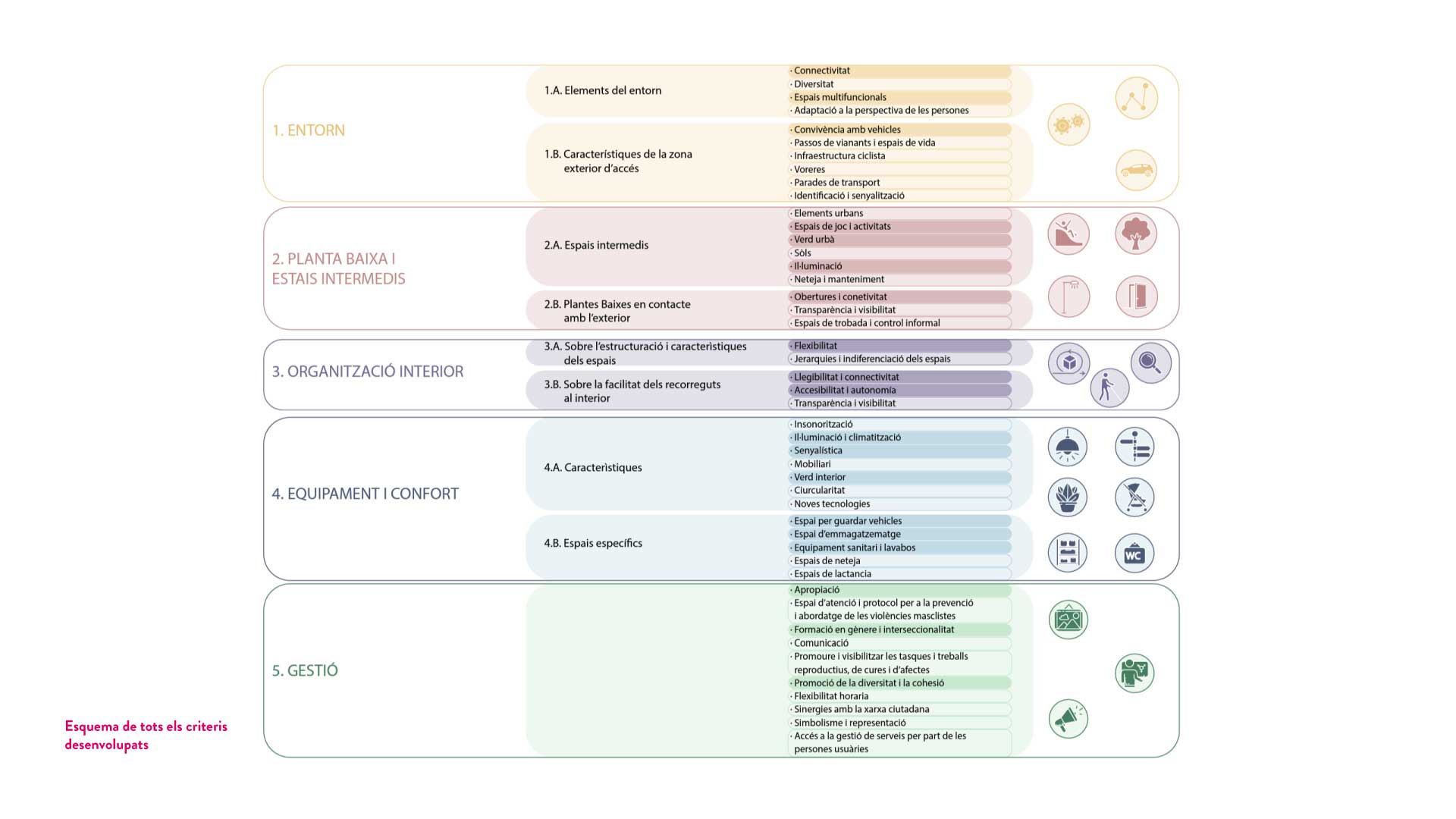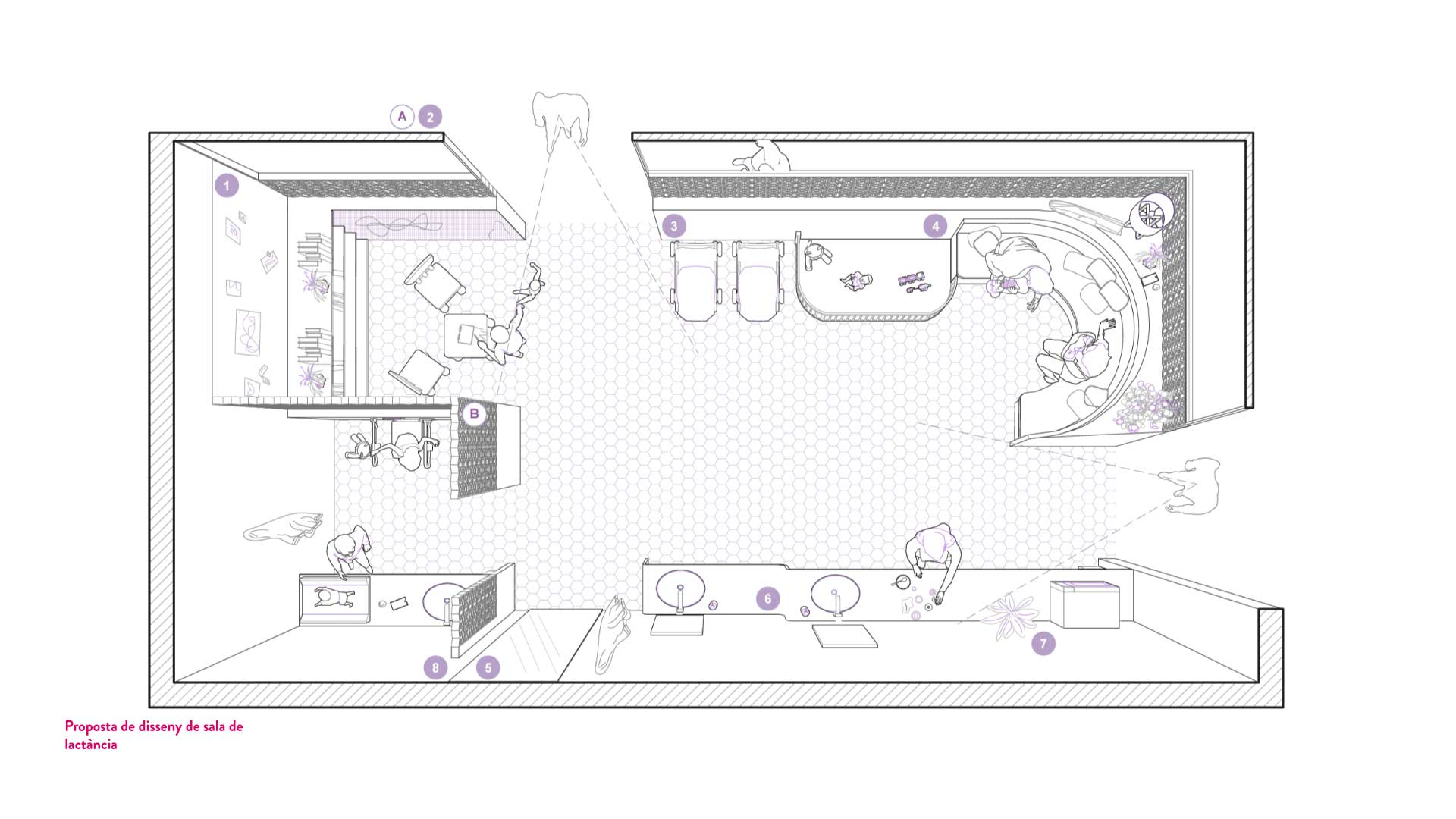Study for the Incorporation of the gender perspective in the implementation and design of municipal facilities in Barcelona
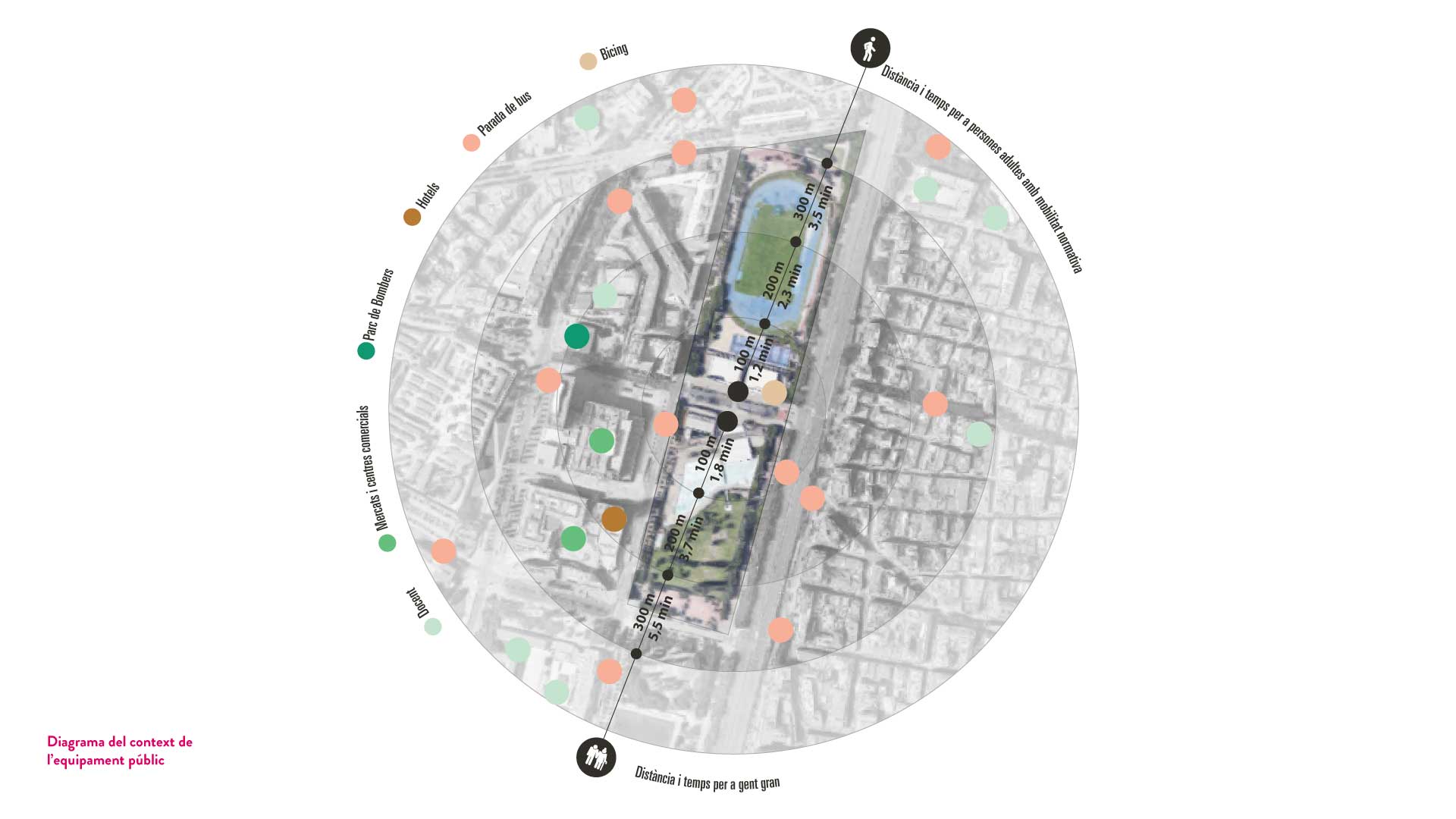
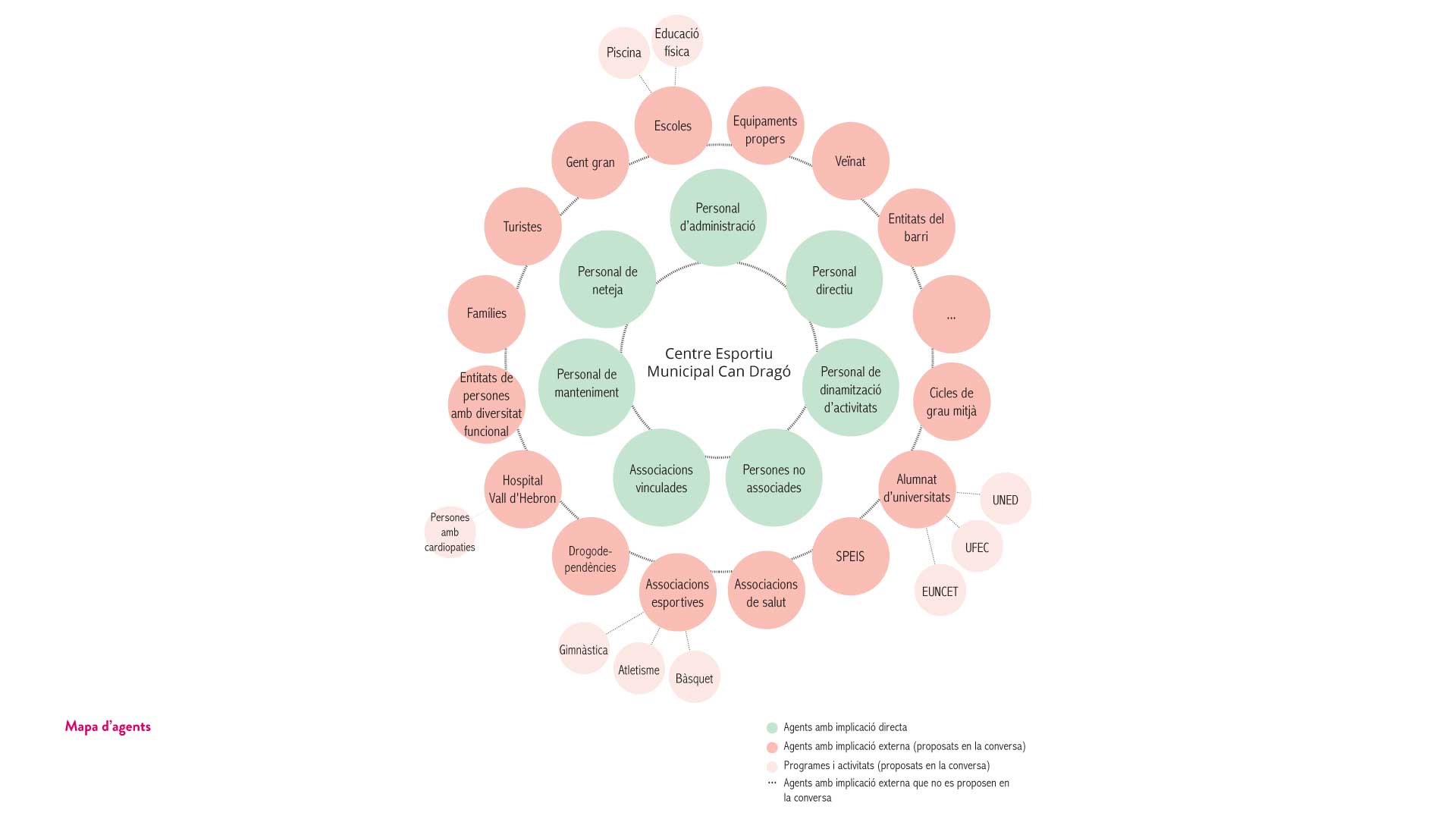
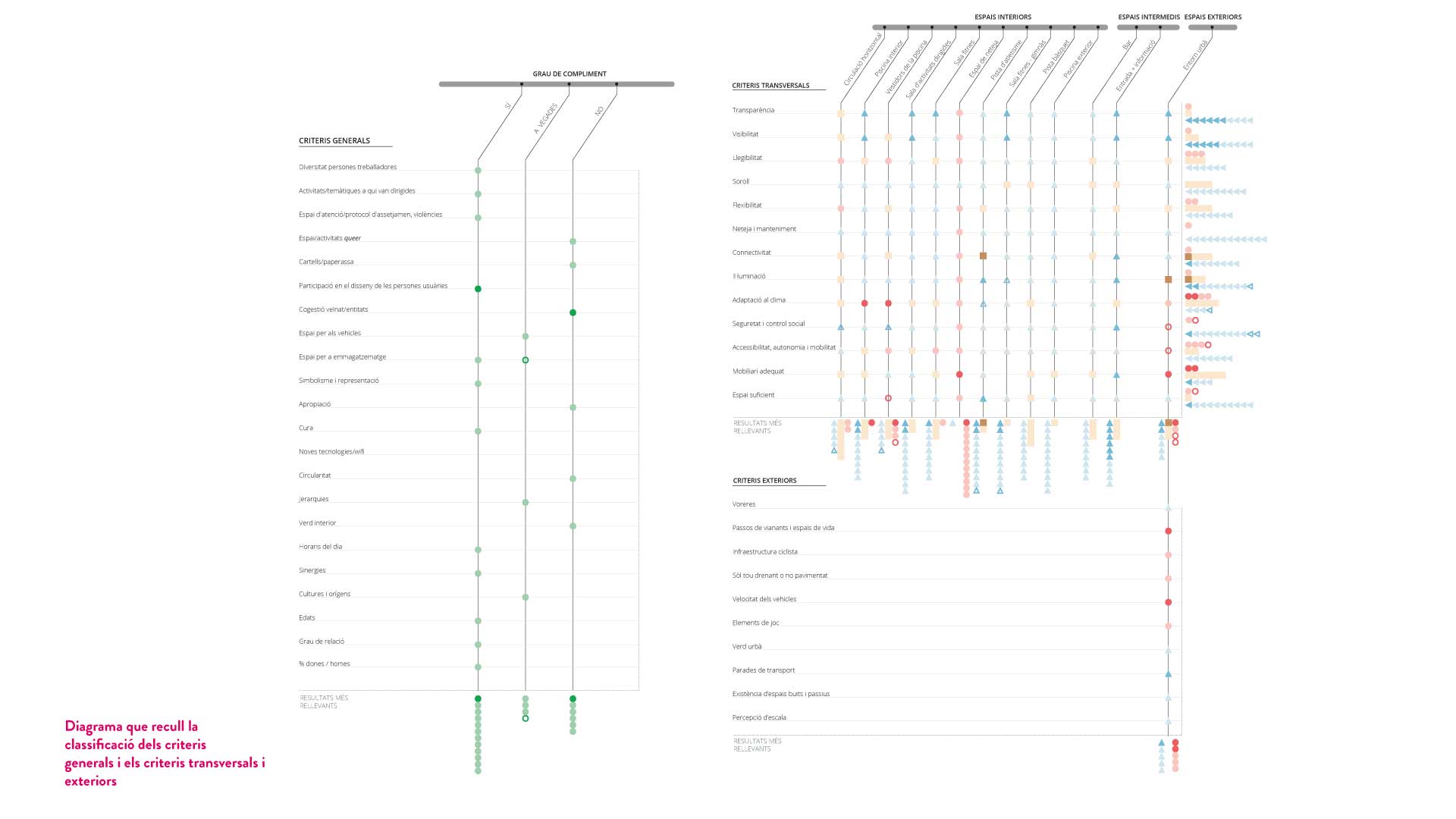
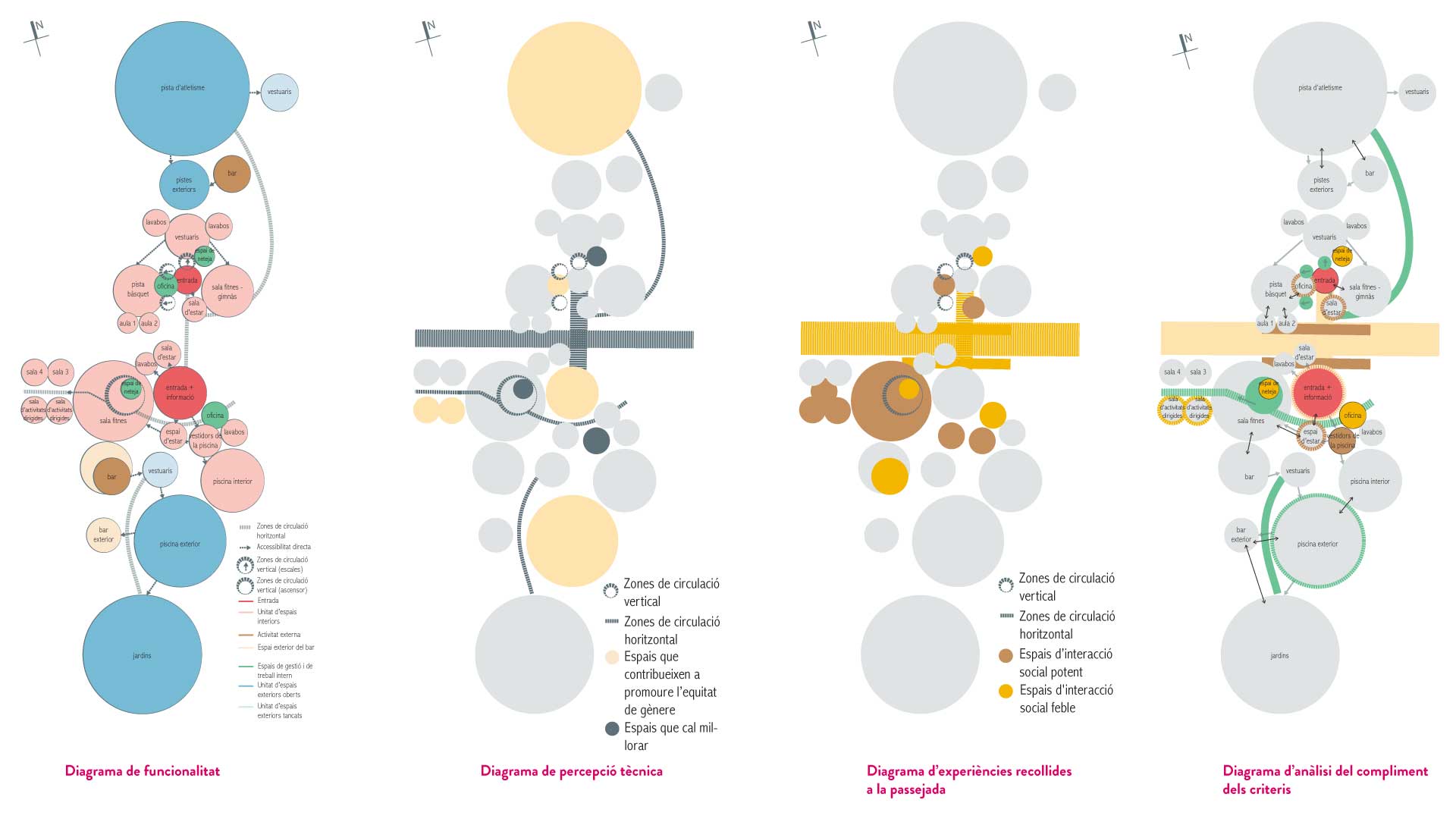
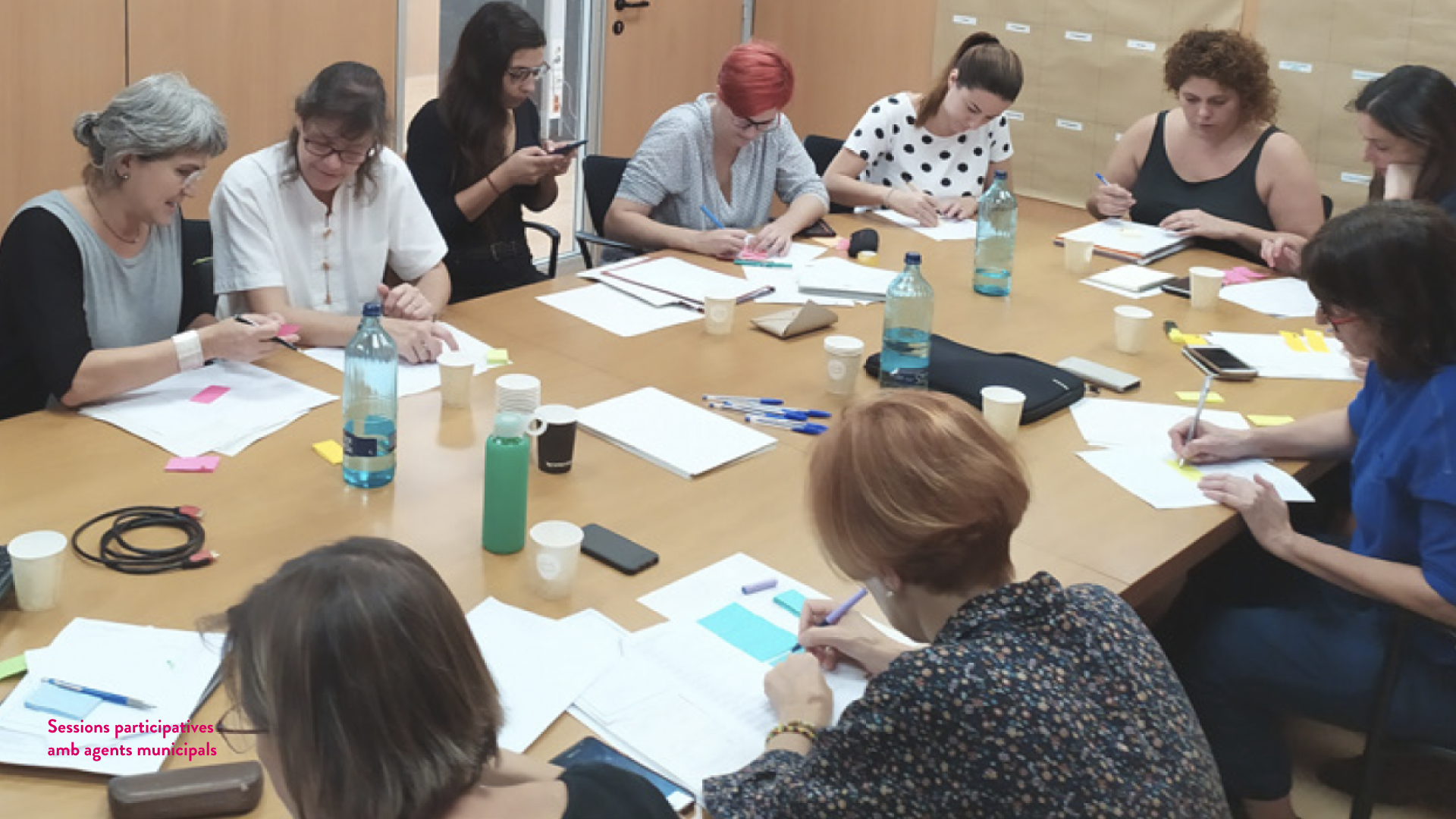
Public space and municipal facilities – which are part of this space of public use – are not gender-neutral. There is a gender gap in the use of municipal services and facilities. In other words, women and men experience the city and make differential use of municipal services and facilities, depending on traditional roles and gender inequalities that derive from them and condition their daily lives.
This study aims to incorporate a gender perspective in the design, implementation, and management of facilities in the city of Barcelona. Specifically, the study seeks to help reverse the gender gap in the use of municipal services and facilities and contribute to (re)thinking these spaces to make them more inclusive and egalitarian.
In this sense, the following are offered:
- Recommendations to incorporate a gender perspective and carry out a feminist transformation of existing municipal facilities.
- Recommendations to incorporate a gender perspective in newly constructed municipal facilities.
- Specific recommendations for a feminist transformation of municipal restrooms, changing rooms, and nurseries.
With this in mind, seven types of municipal facilities are analyzed:
- Sports facilities
- Youth facilities
- Children’s facilities
- Facilities for the elderly
- Social care and inclusion facilities
- Commercial facilities
- Cultural facilities, including libraries
For each type of facility, particular elements, both interior and exterior, are studied that potentially may generate differential use by gender or different user experiences. The objective is to identify possible obstacles and discriminations and propose alternatives to reverse them from a gender perspective.
Place
Barcelona
[1,620,343 inhabitants]
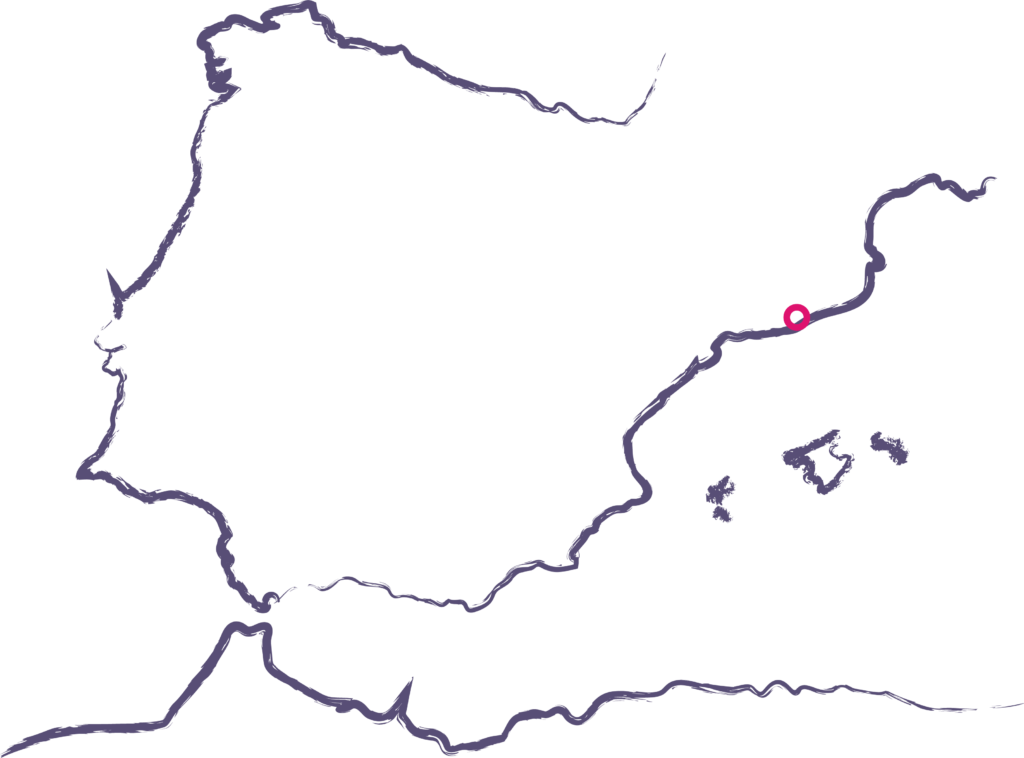
Scale
Municipal
Type of project
Urban Strategies
Urban pedagogy
Duration
24 months [2019-2021]
Promoter
Barcelona City Council’s
Department of Gender
Services and Times Policies
Team
*estel (Alba Domínguez Ferrer,
Konstantina Chrysostomou,
Marc Deu Ferrer, Arnau Boix i
Pla)
Ana Paricio
Collaborators
Municipal agents (Departament
de Transversalitat de Gènere,
Departament de Prospectiva –
Model Urbà – d’Ecologia Urbana,
Institut Municipal de Persones
amb Discapacitat, Departament
d’Atenció Social a la Família i la
Infància, Departament de
Joventut, Coordinació de l’Espai
Jove Garcilaso, Institut
Municipal Barcelona Esports –
Direcció de Serveis
d’Instal·lacions i Obres, Punt
d’Informació i Atenció a les
Dones, Institut de Cultura de
Barcelona, Direcció de Cultura de
Proximitat)

